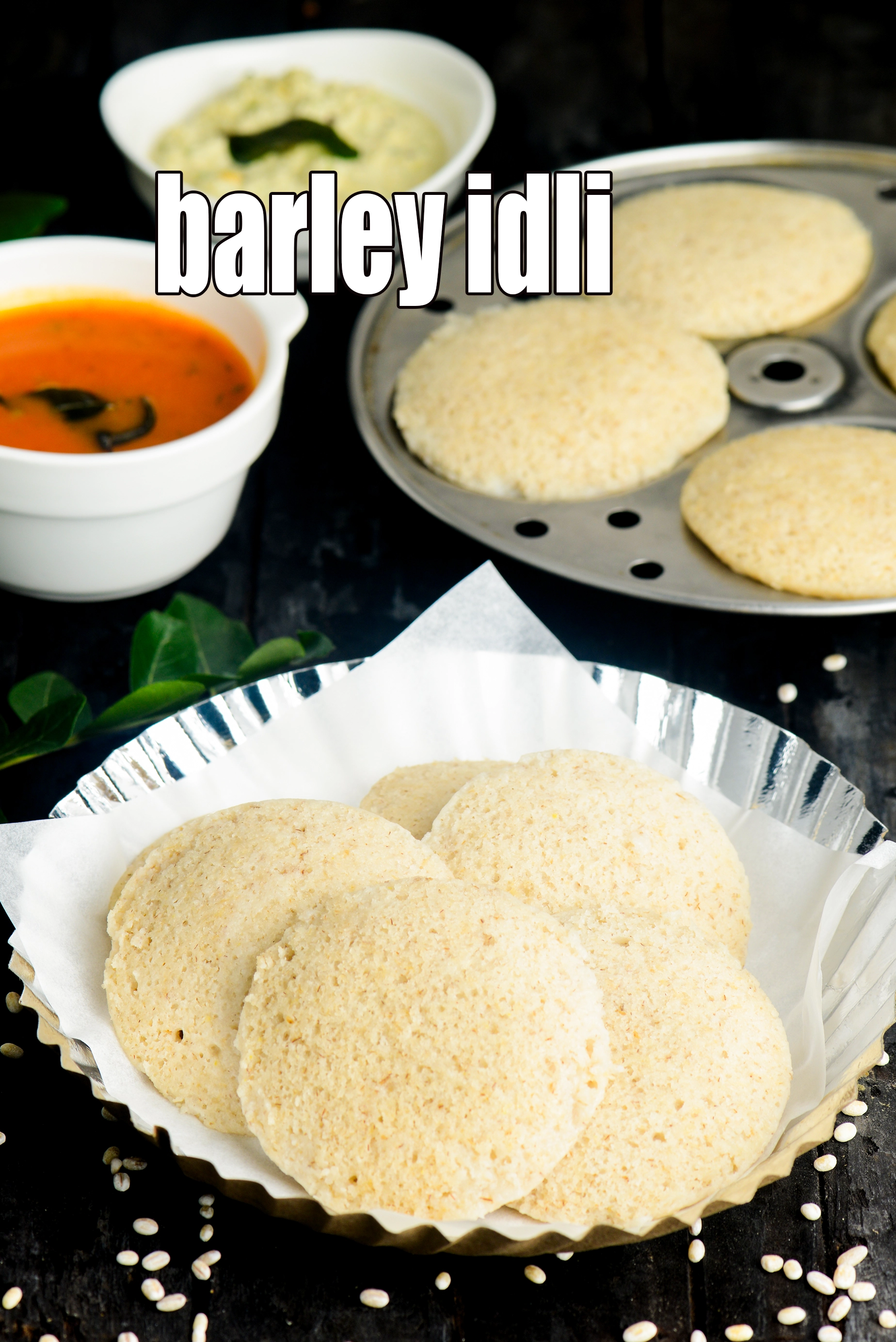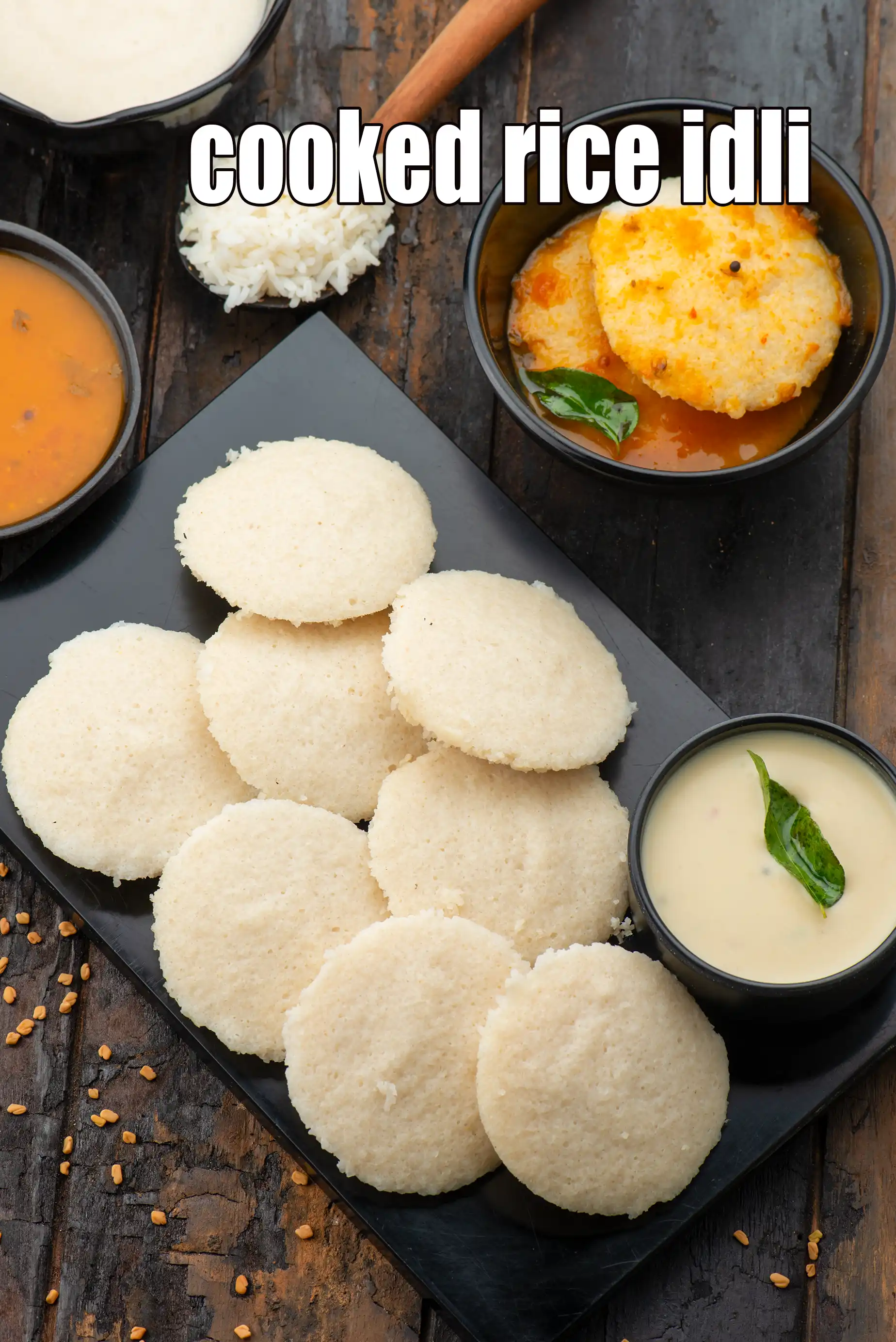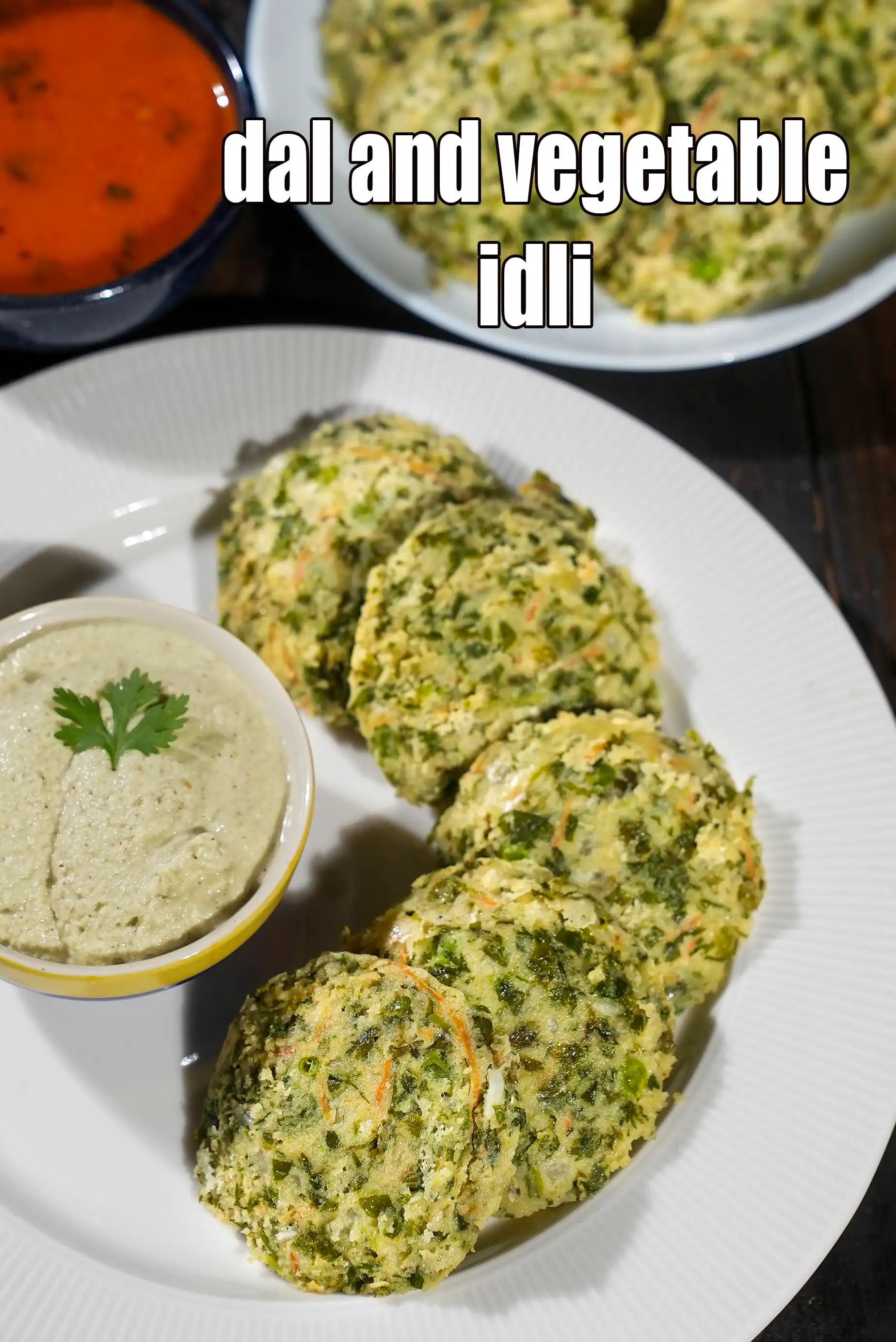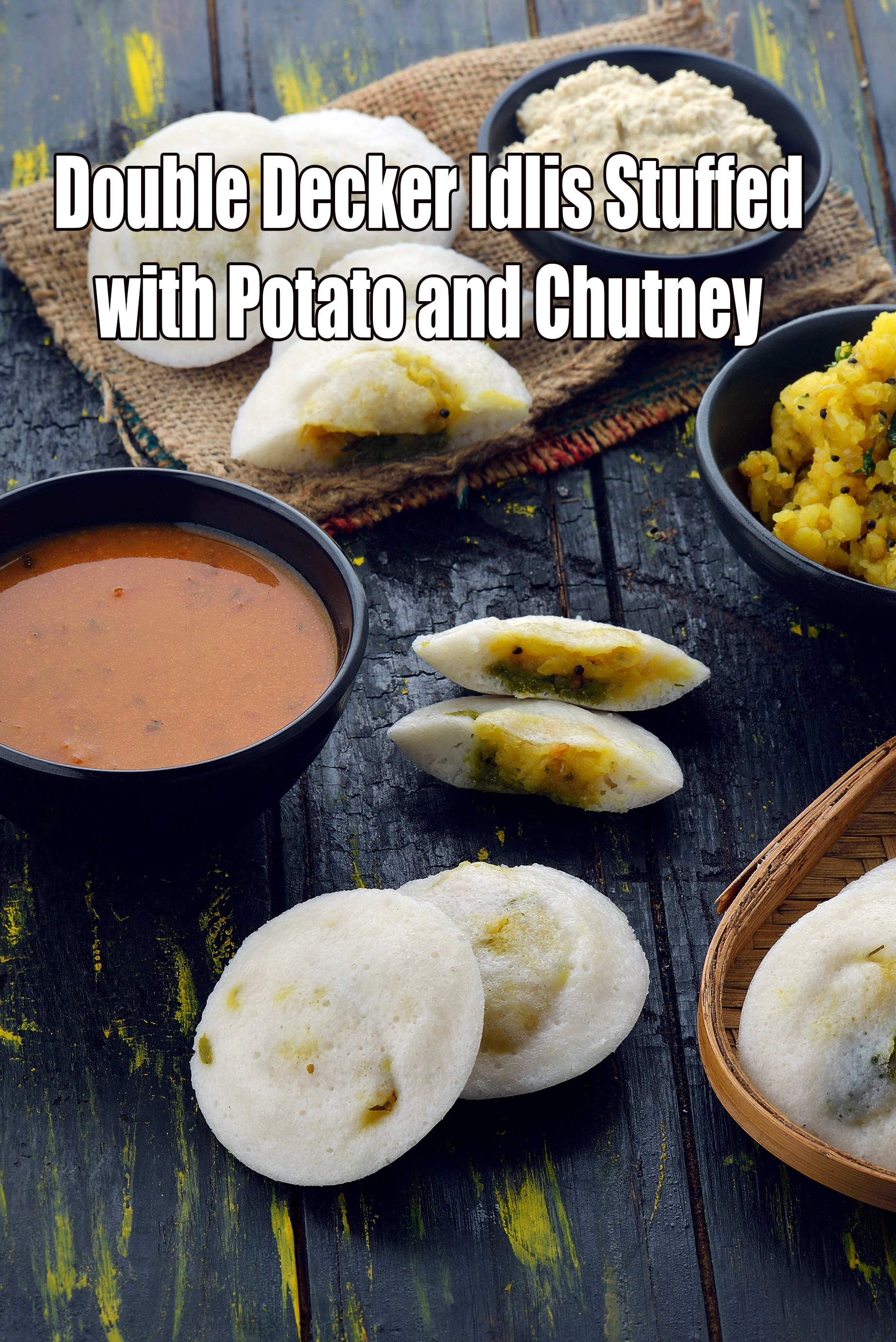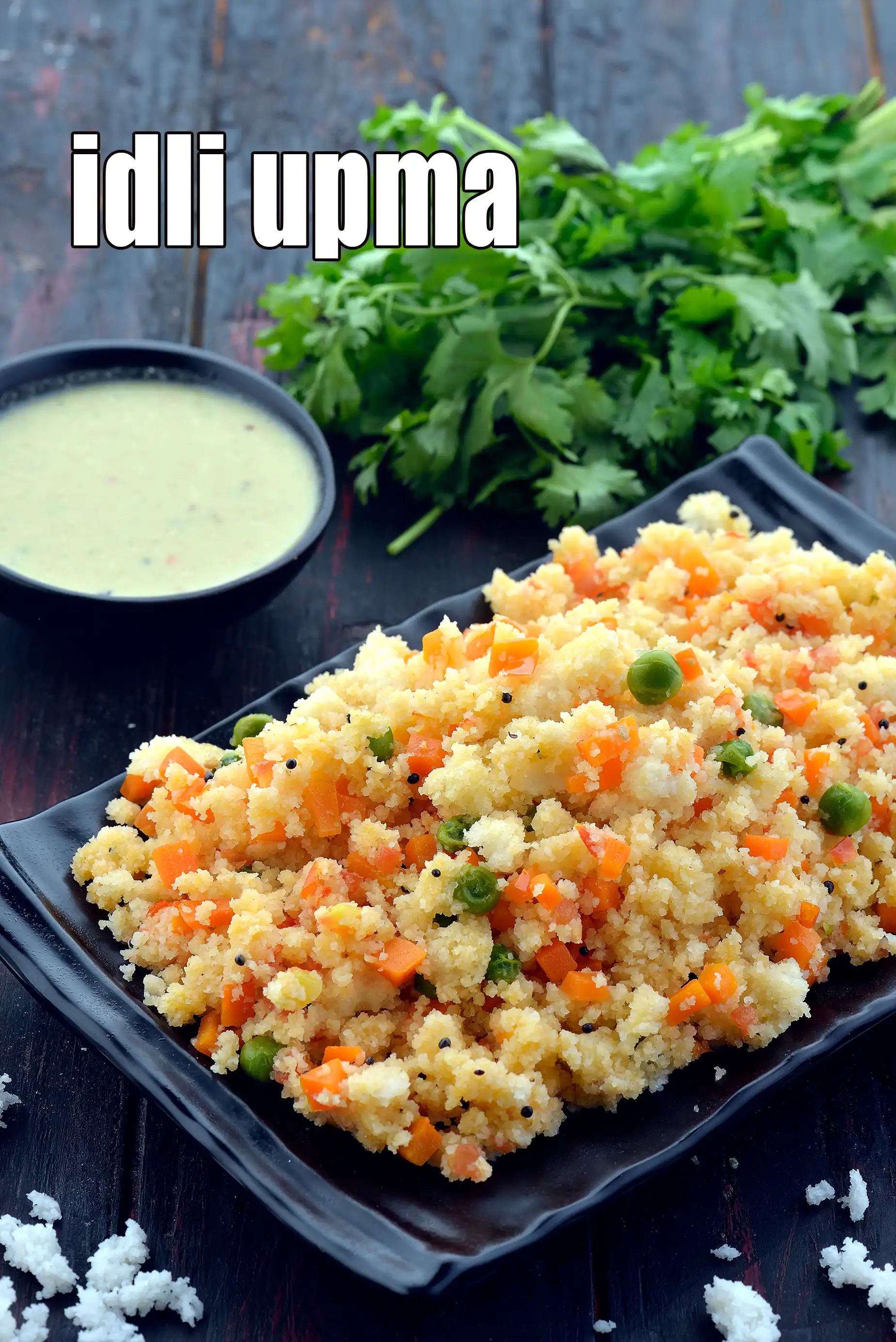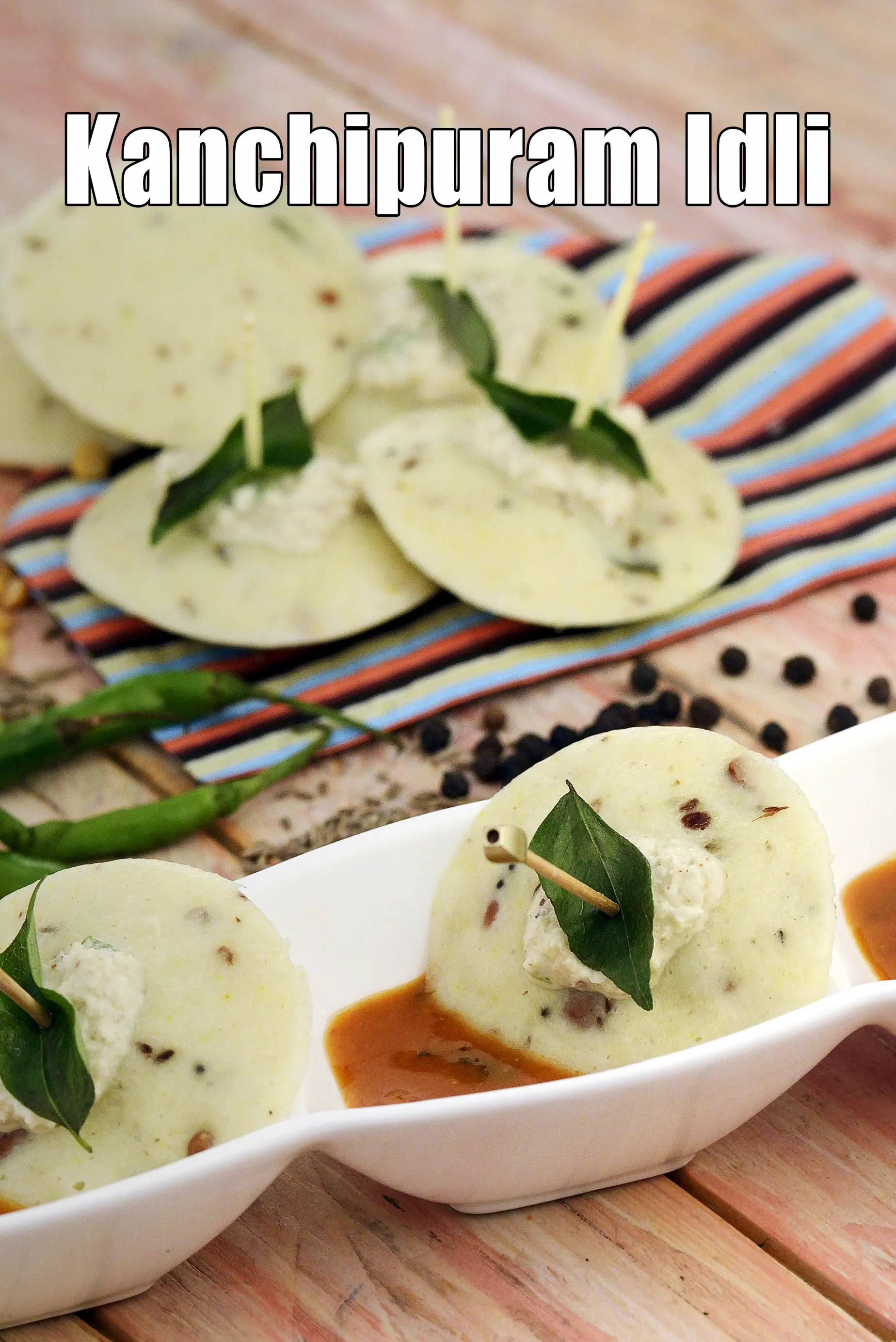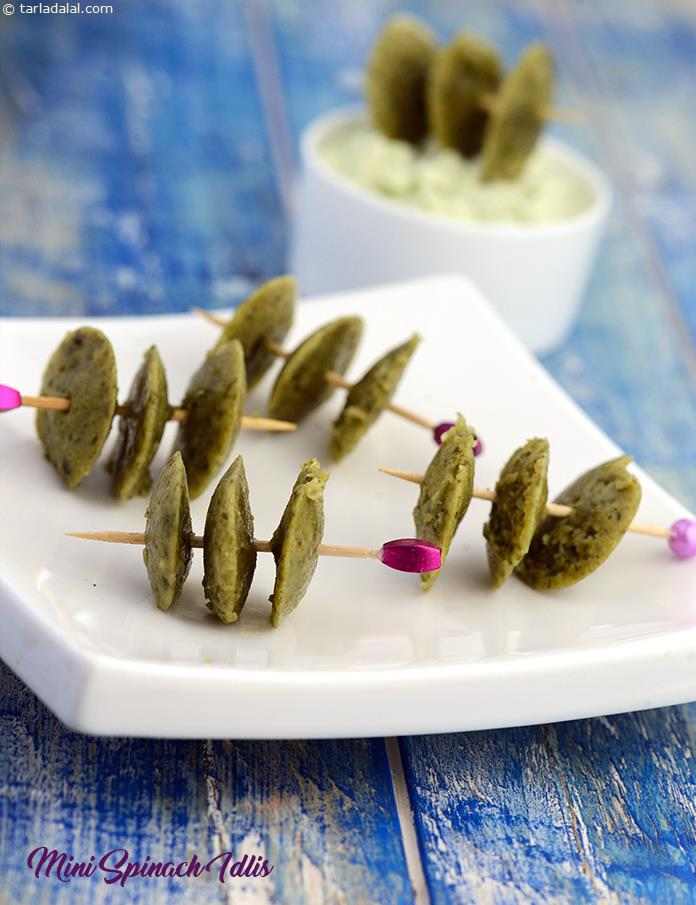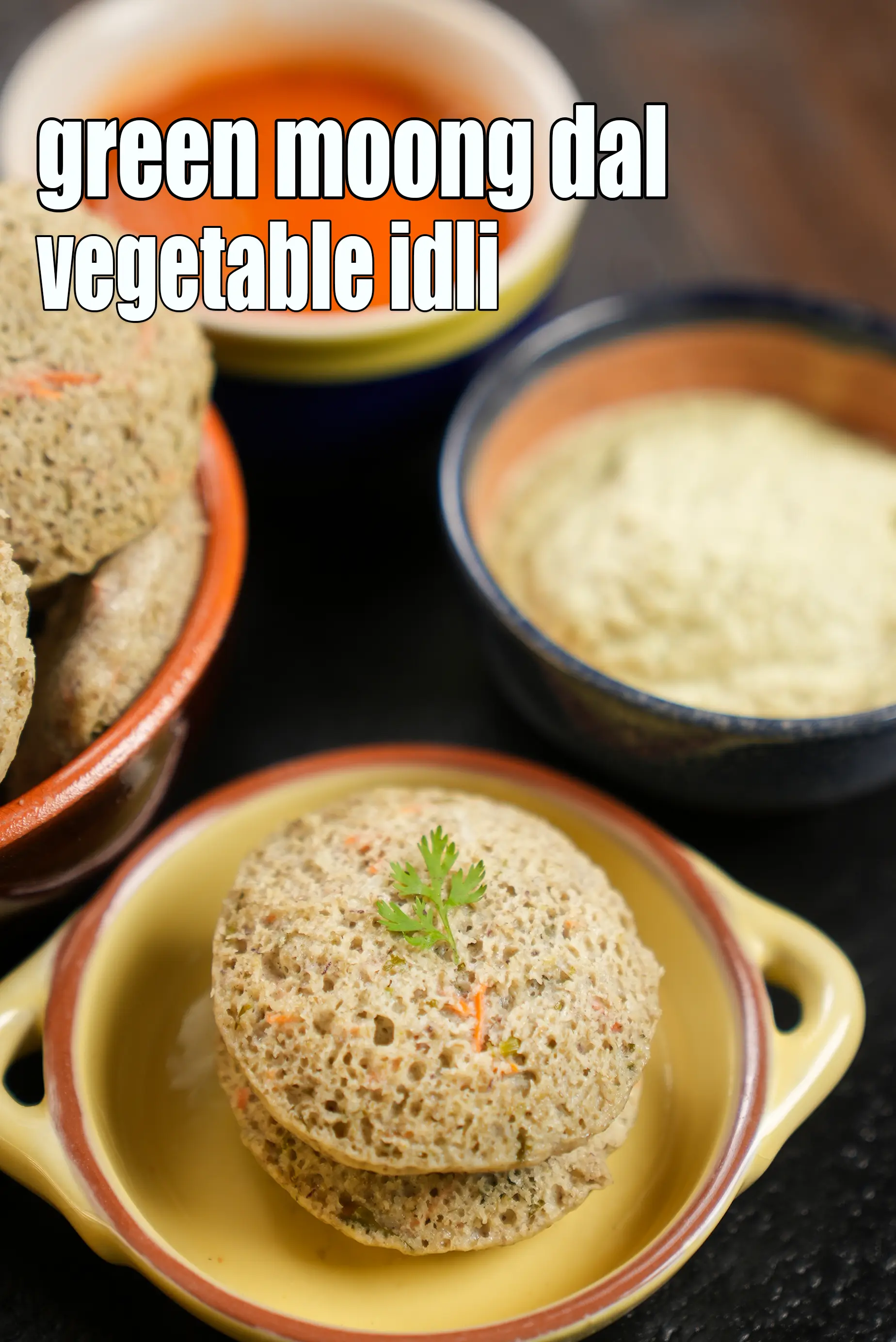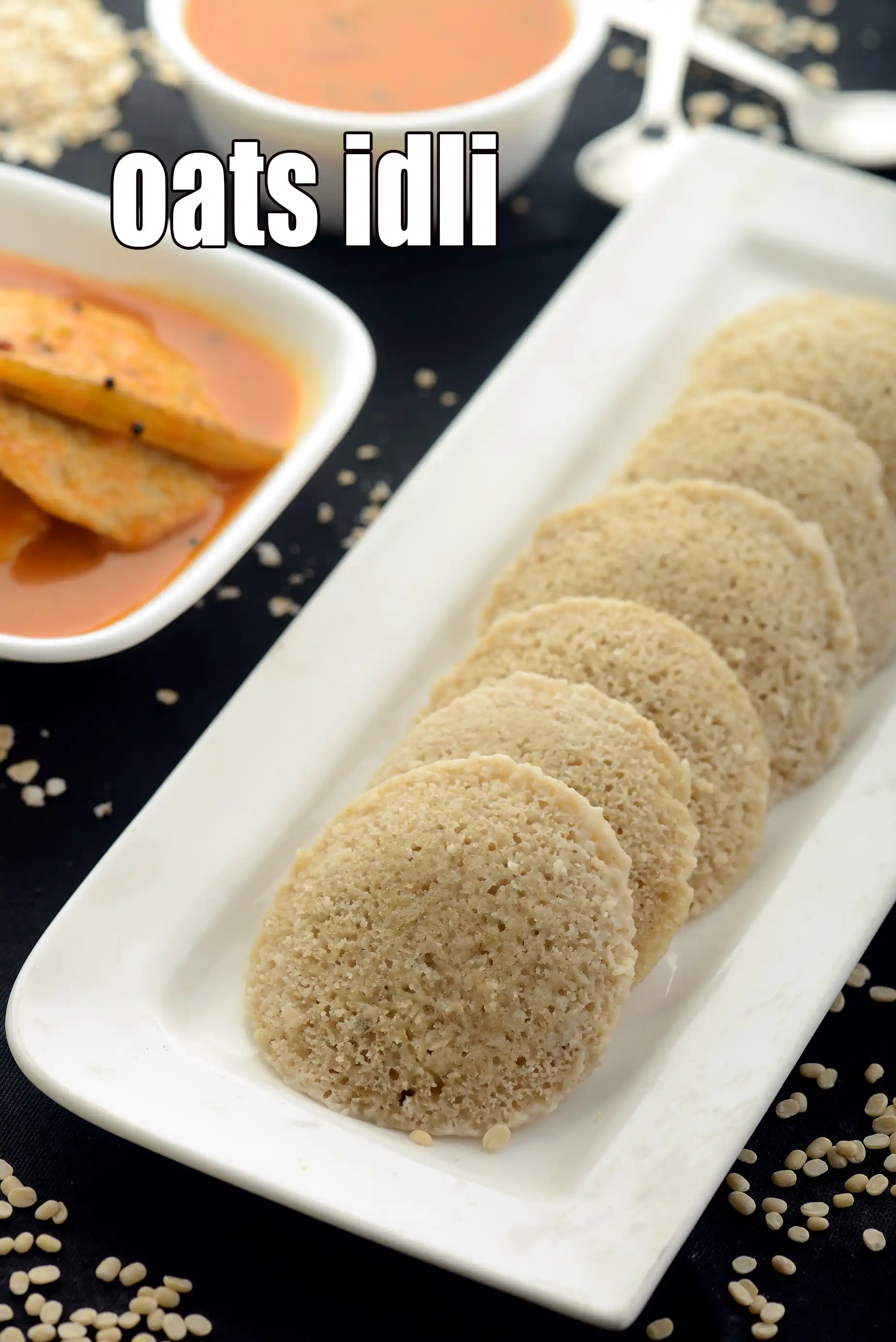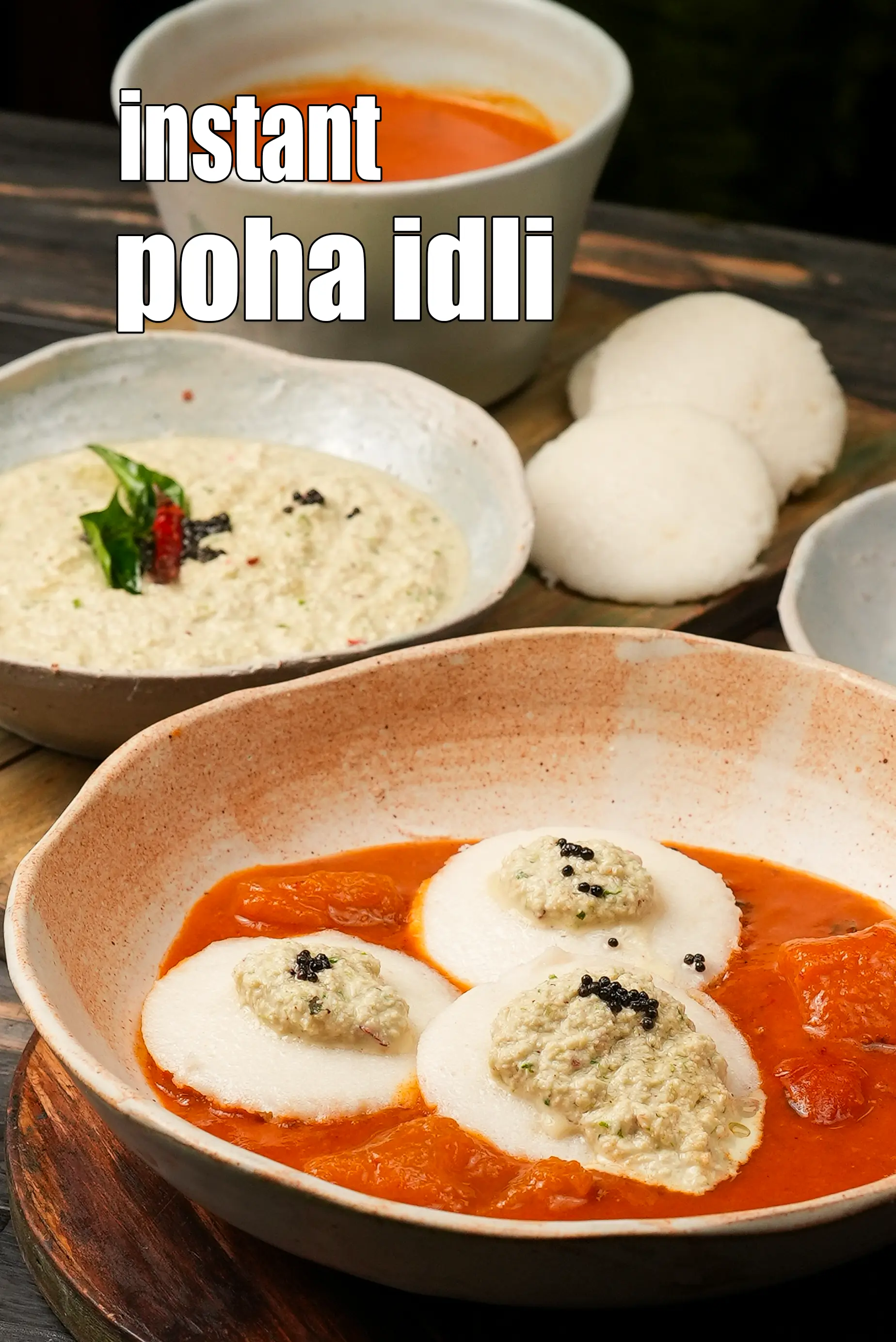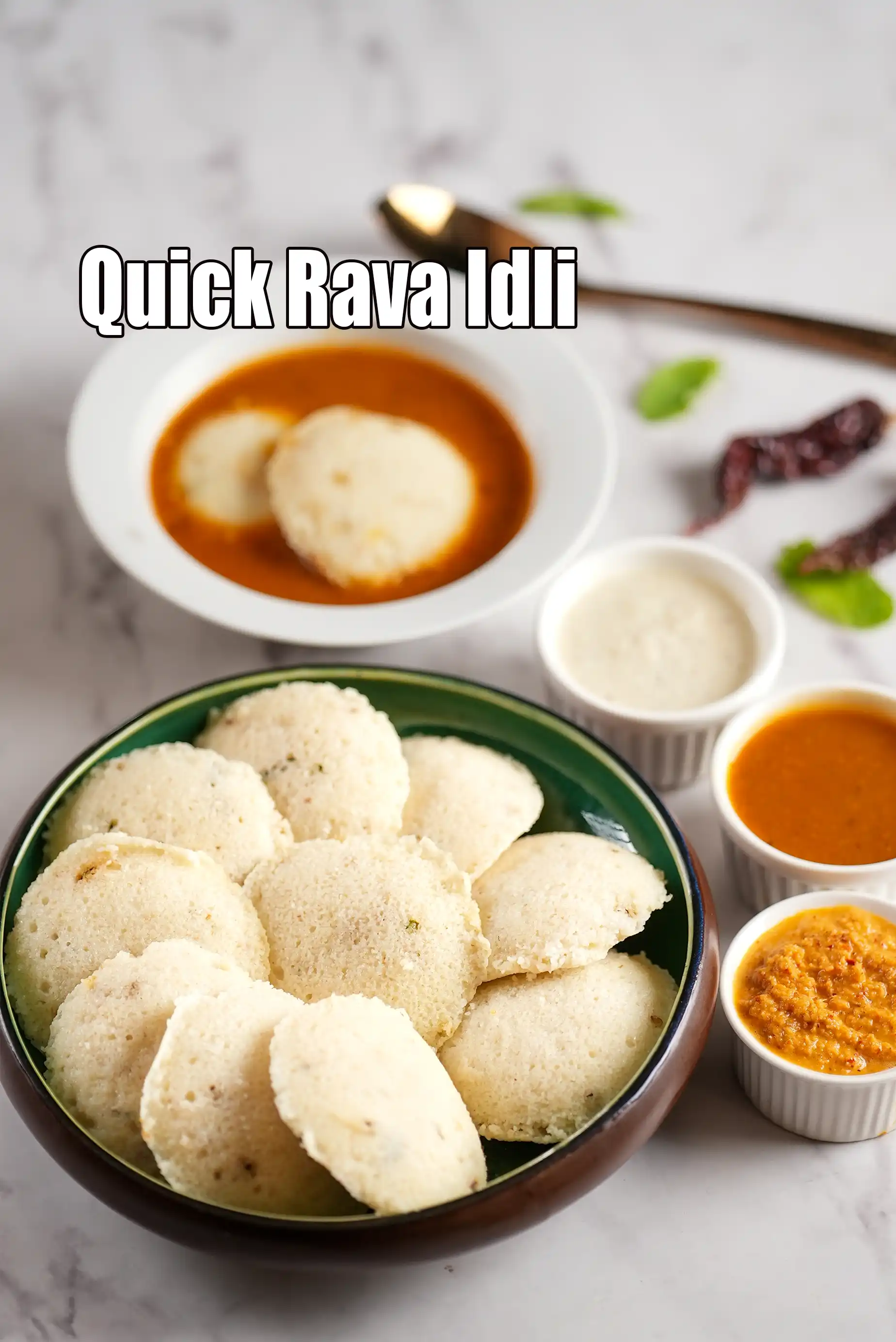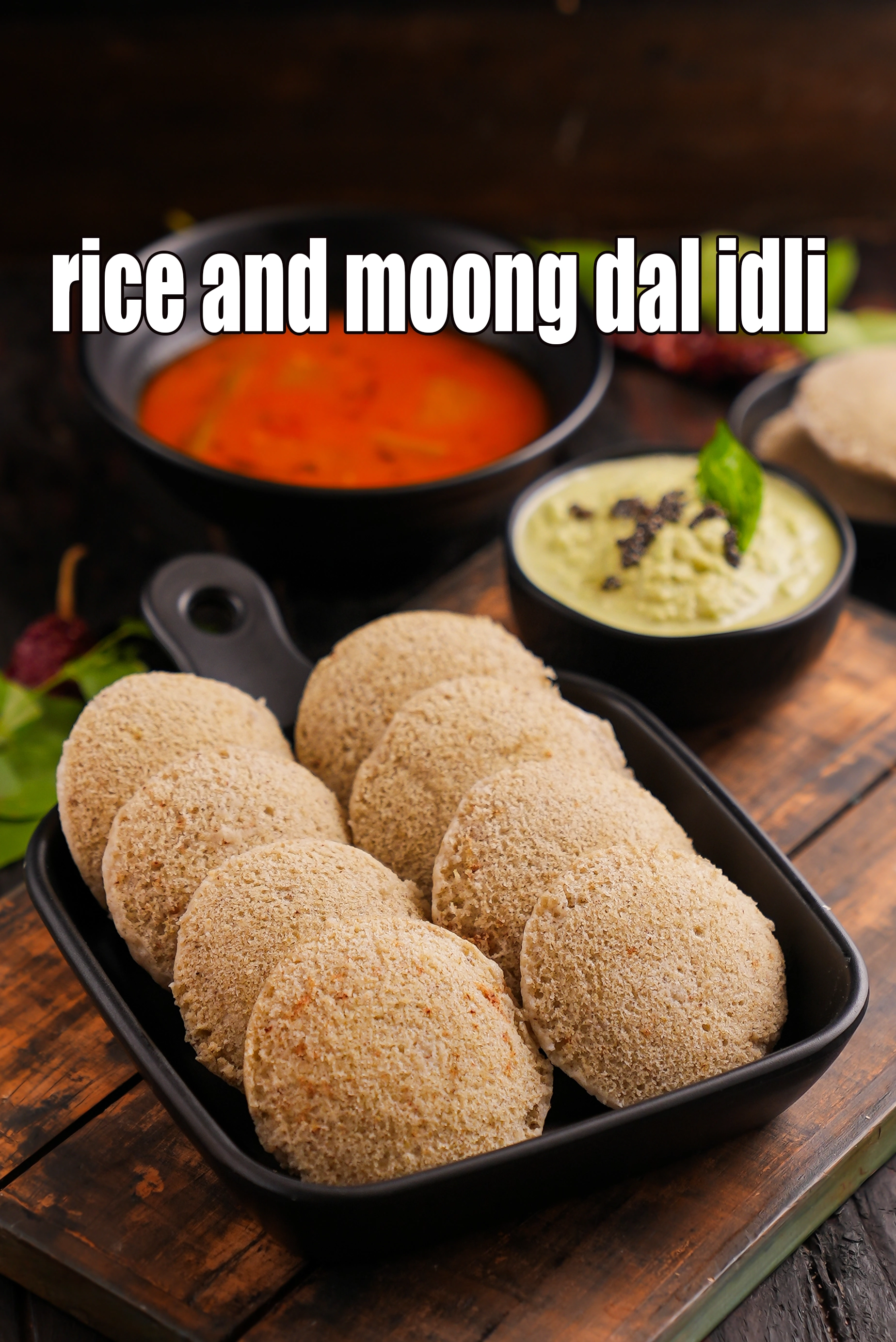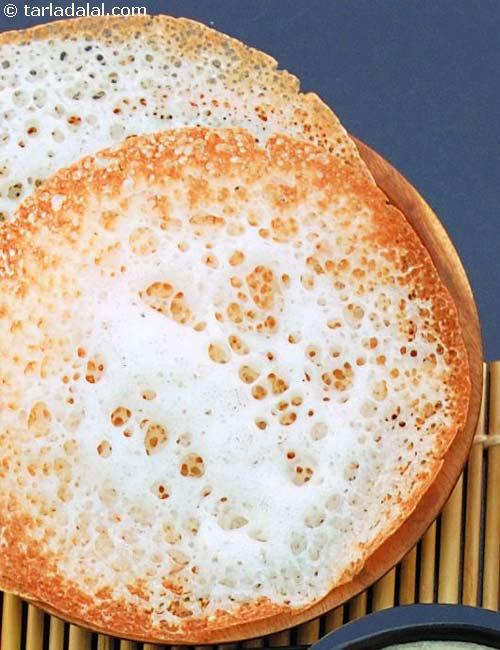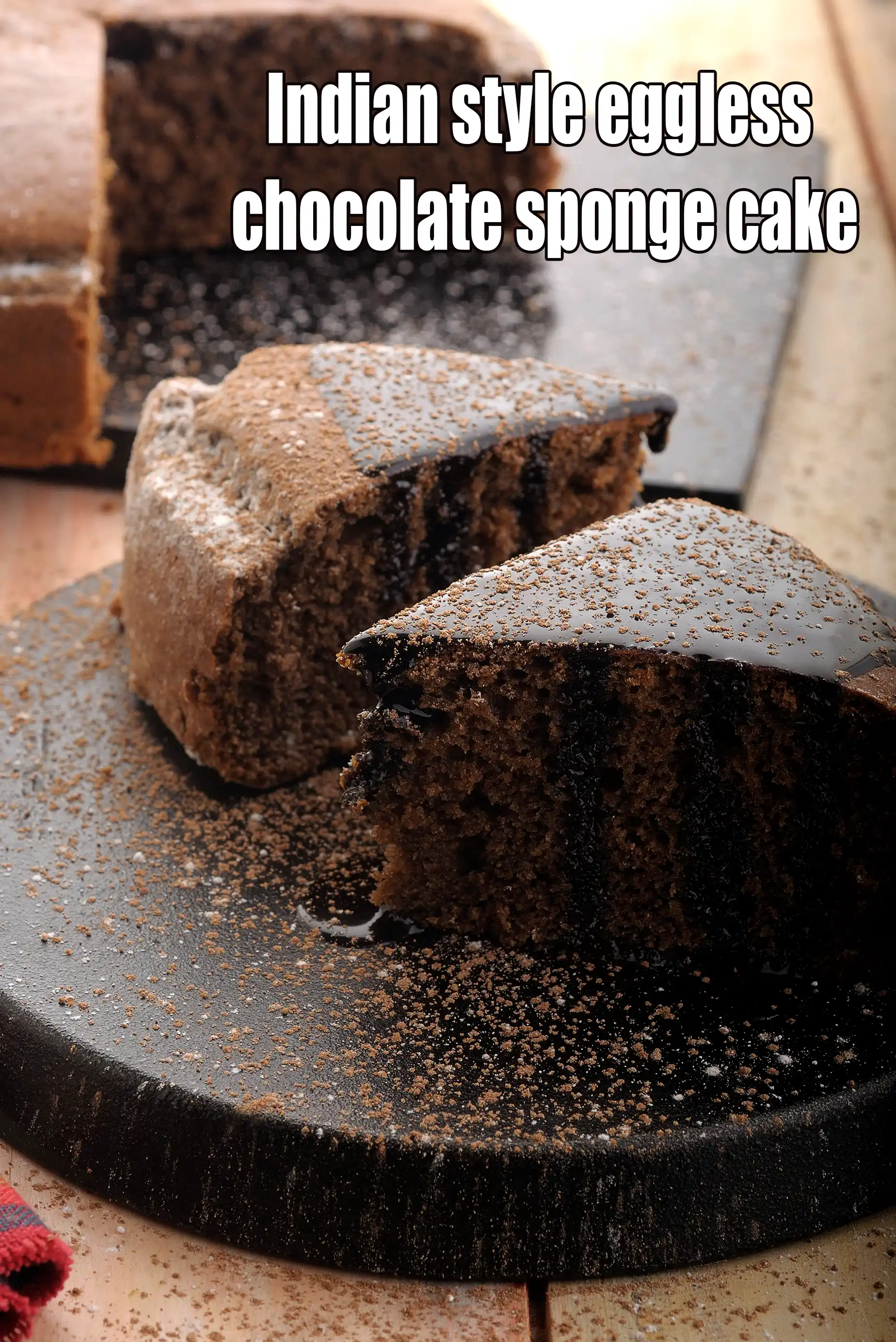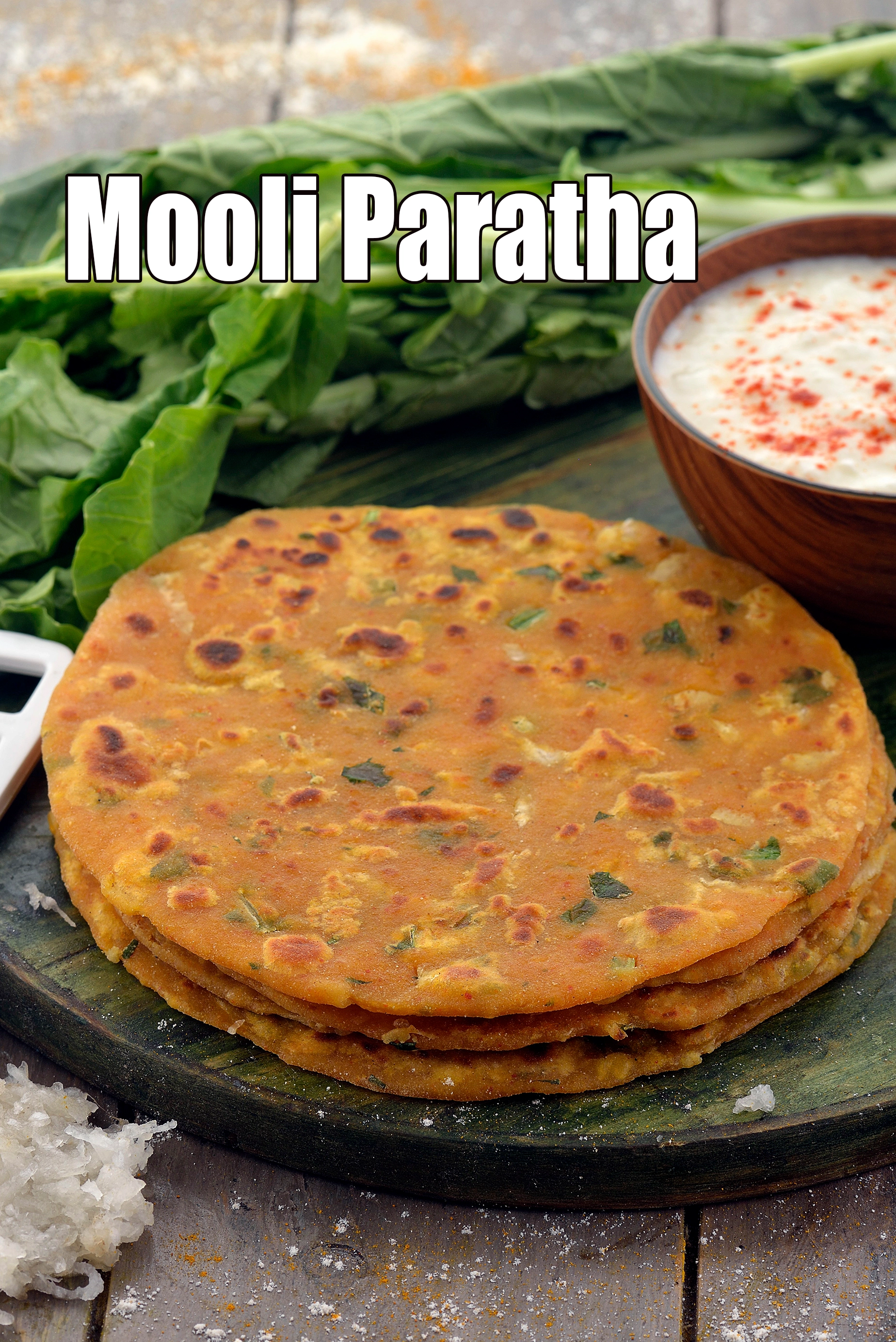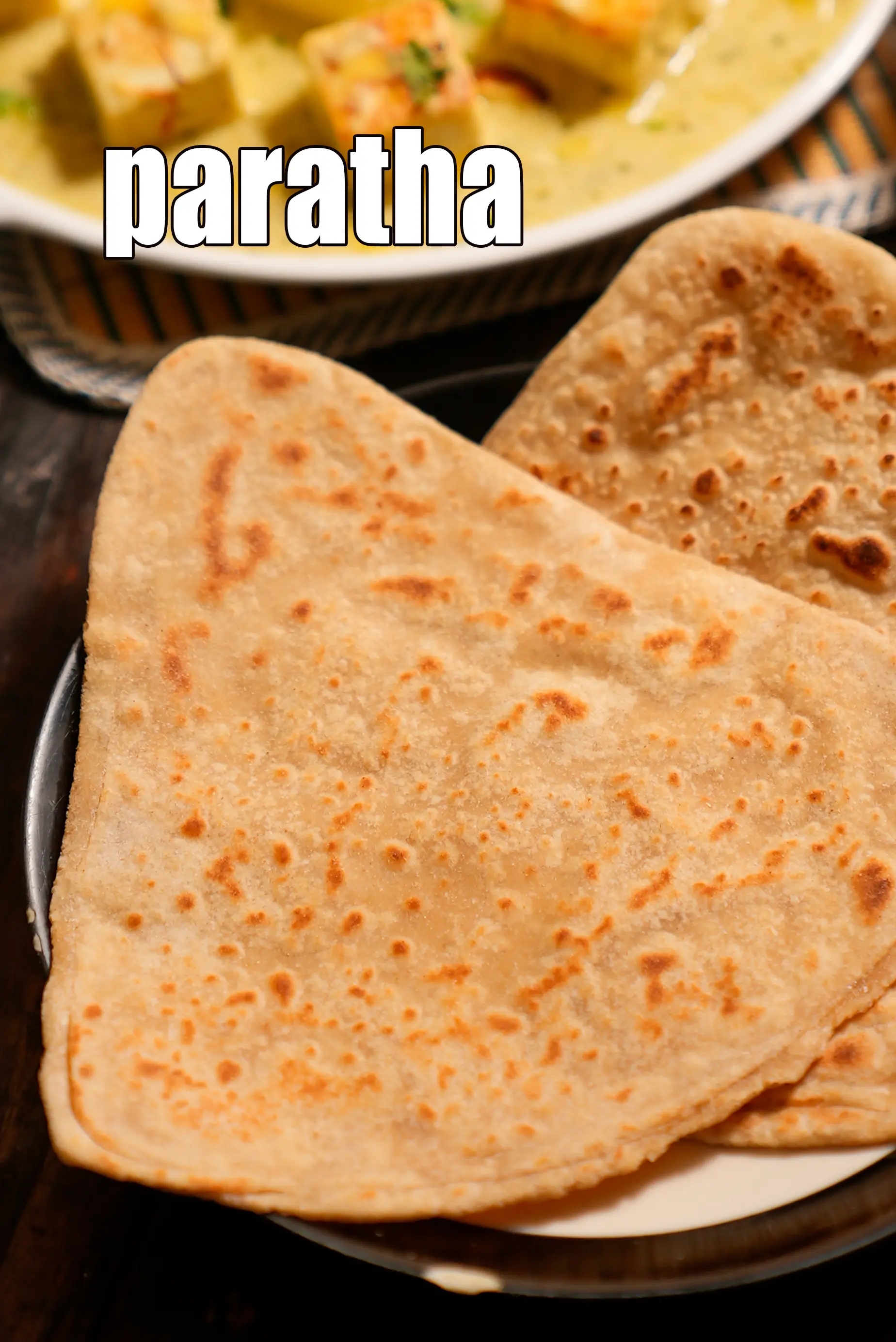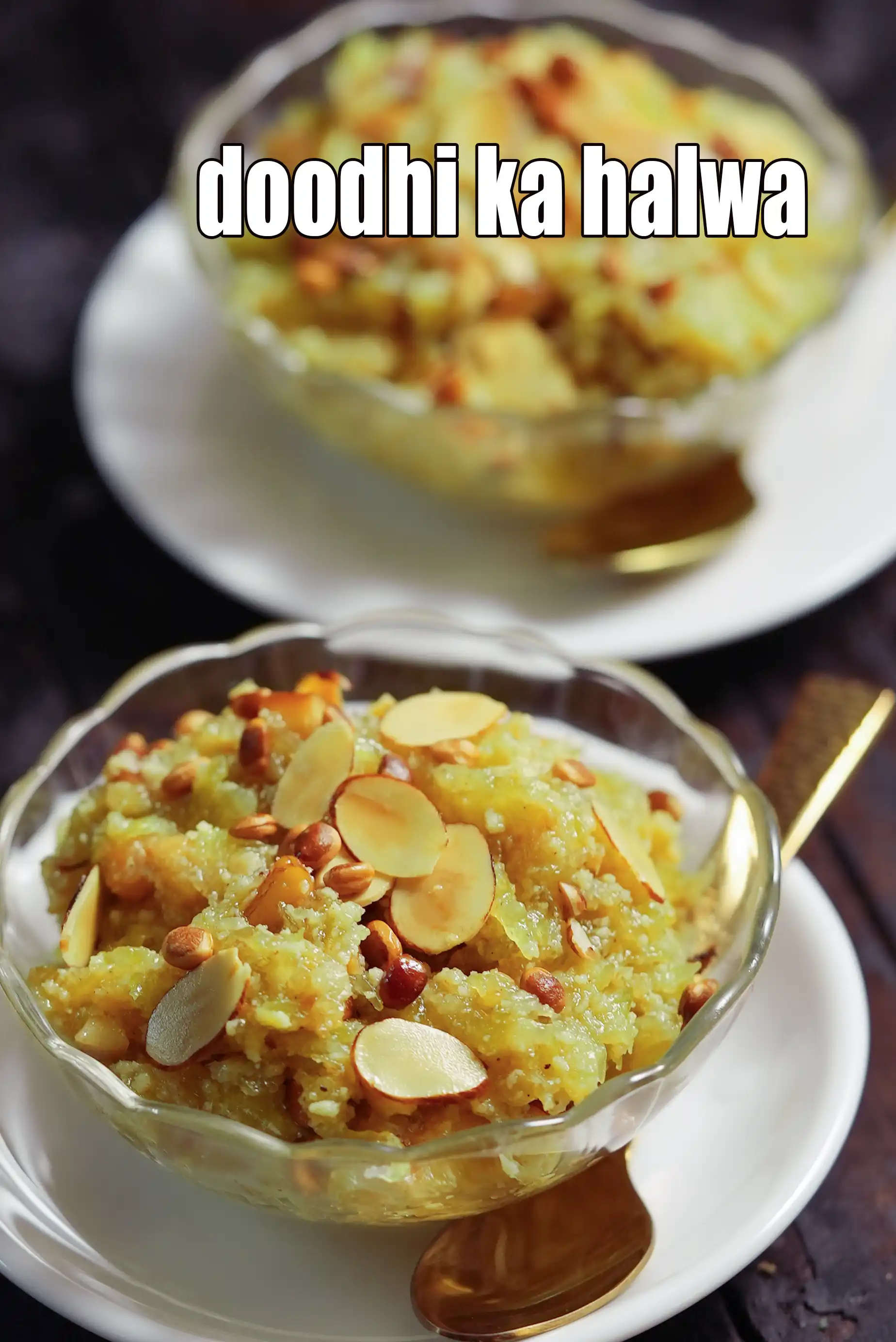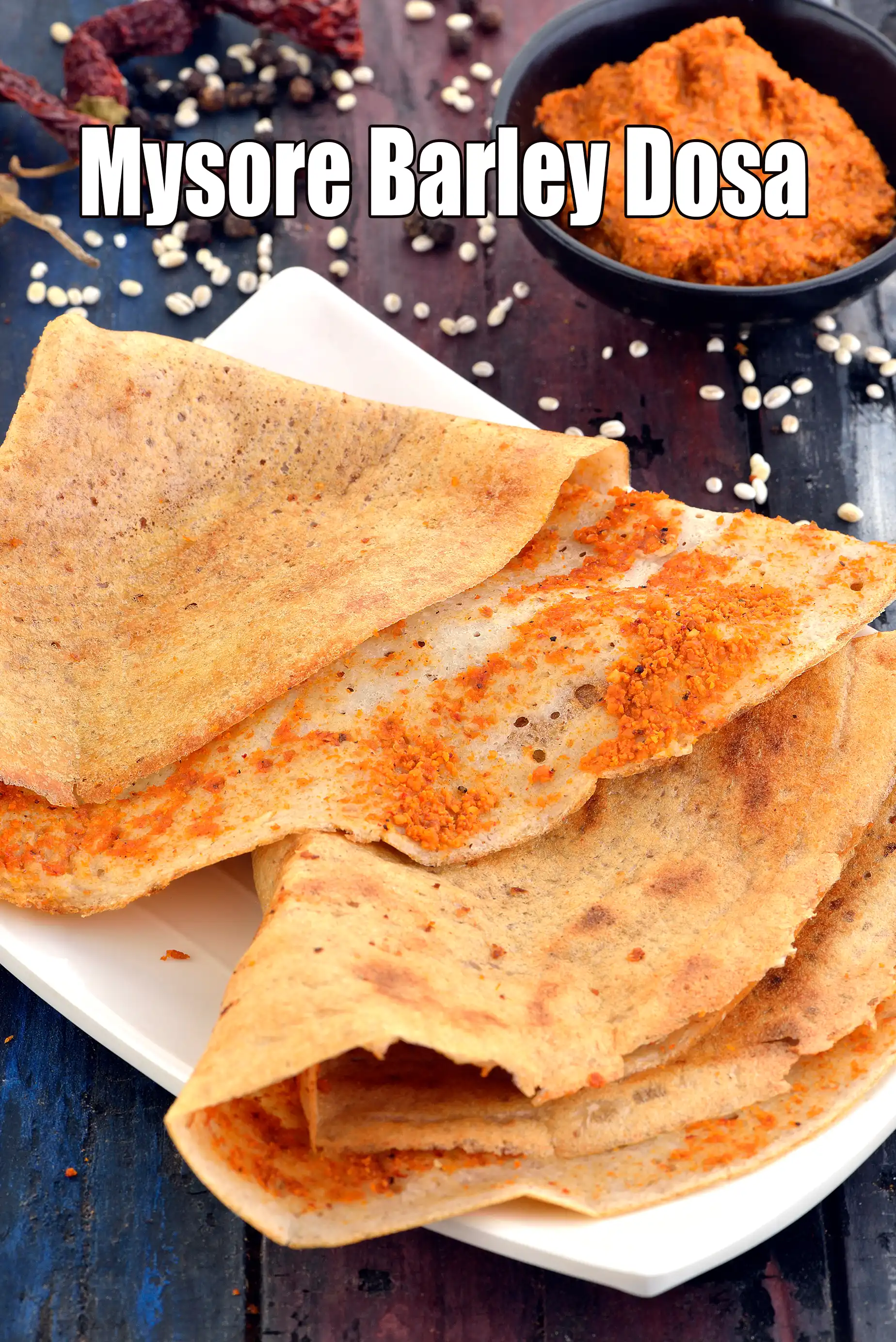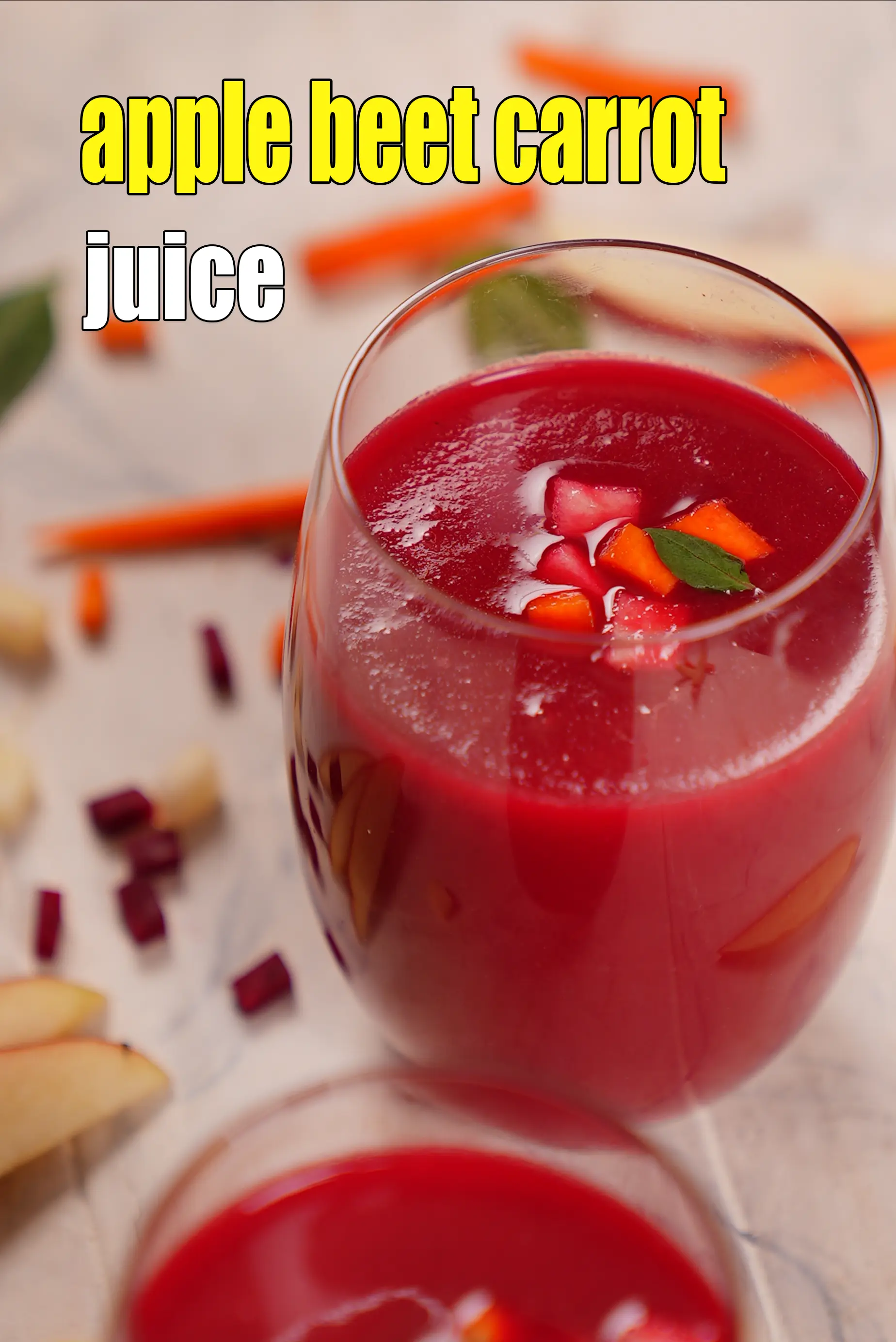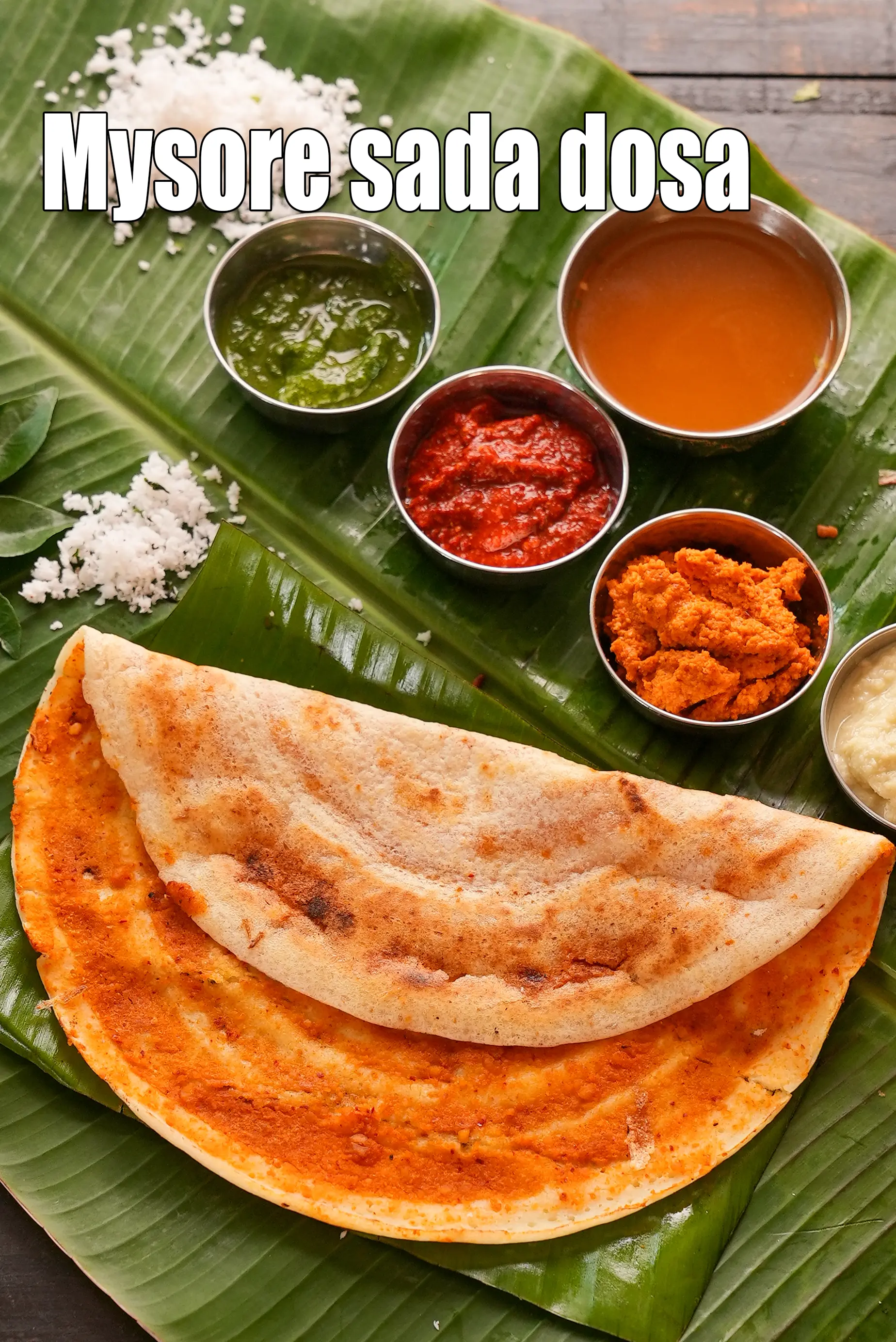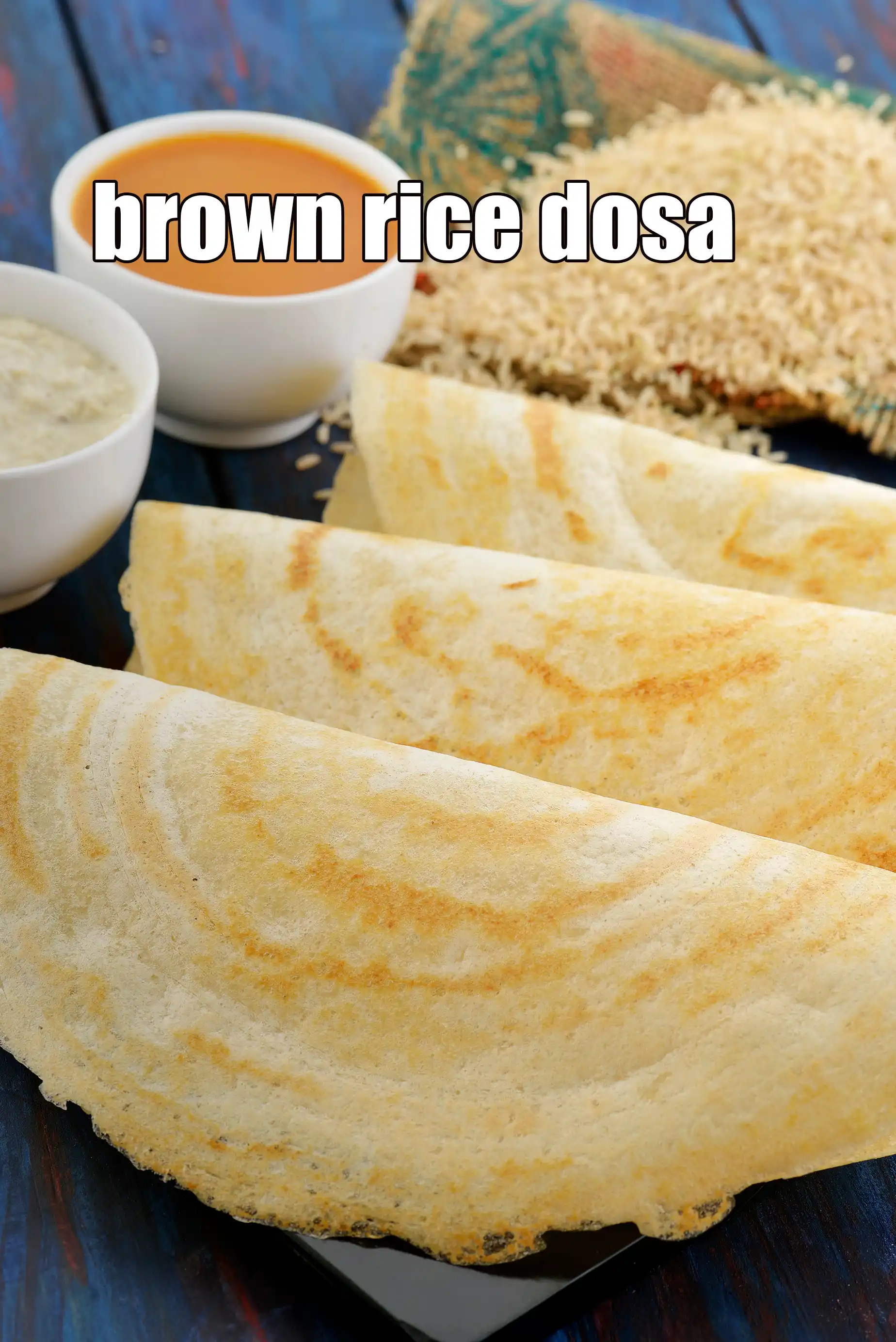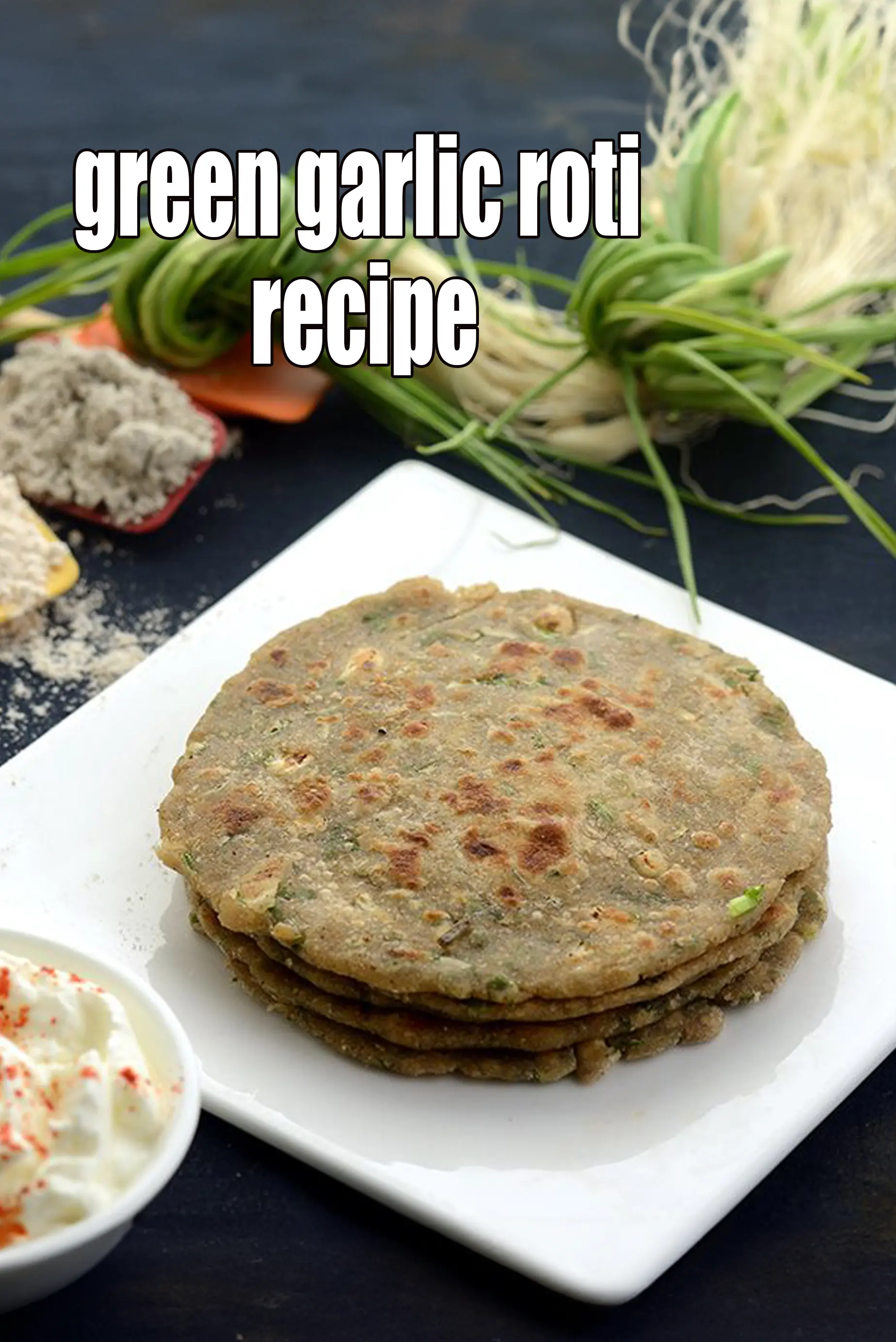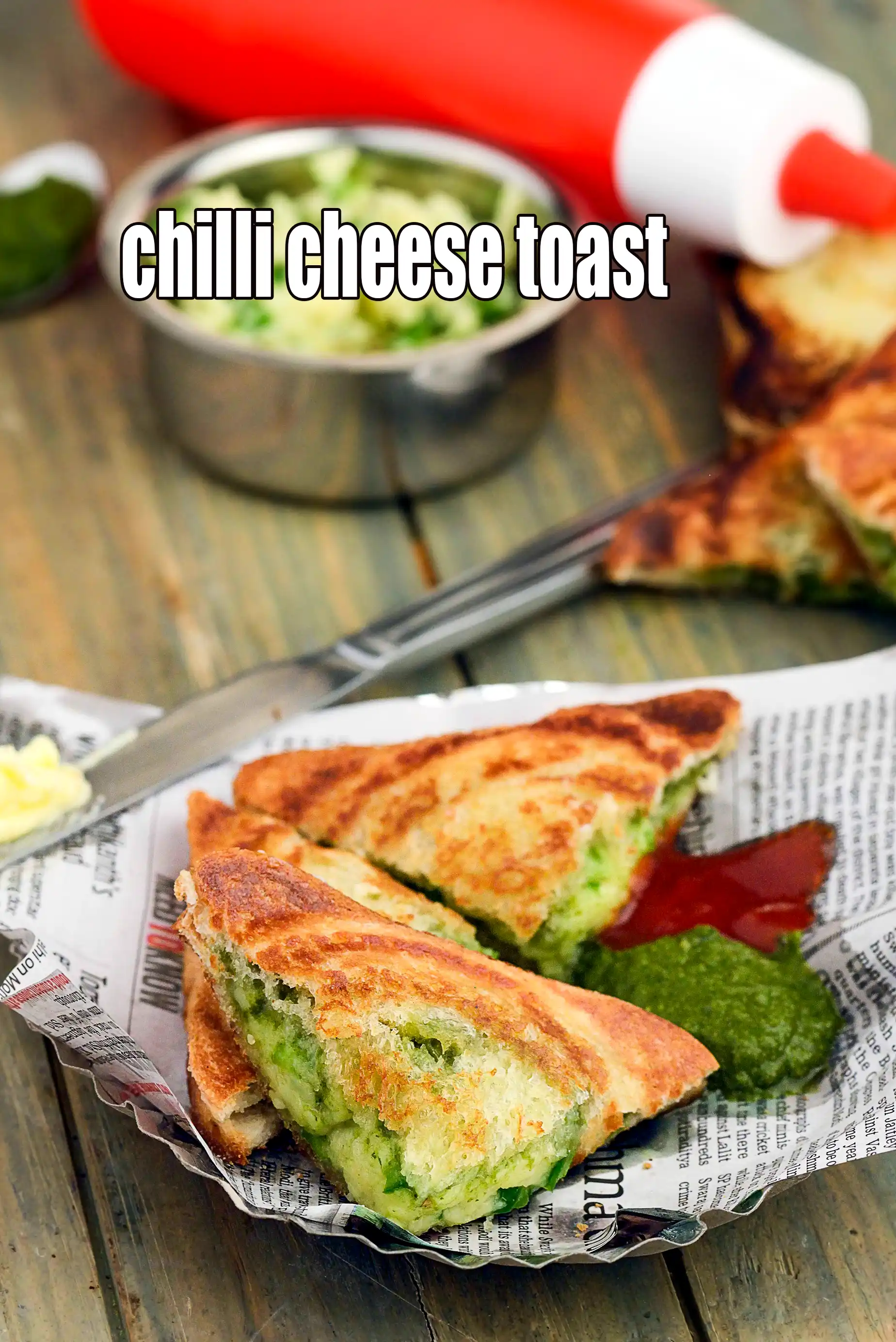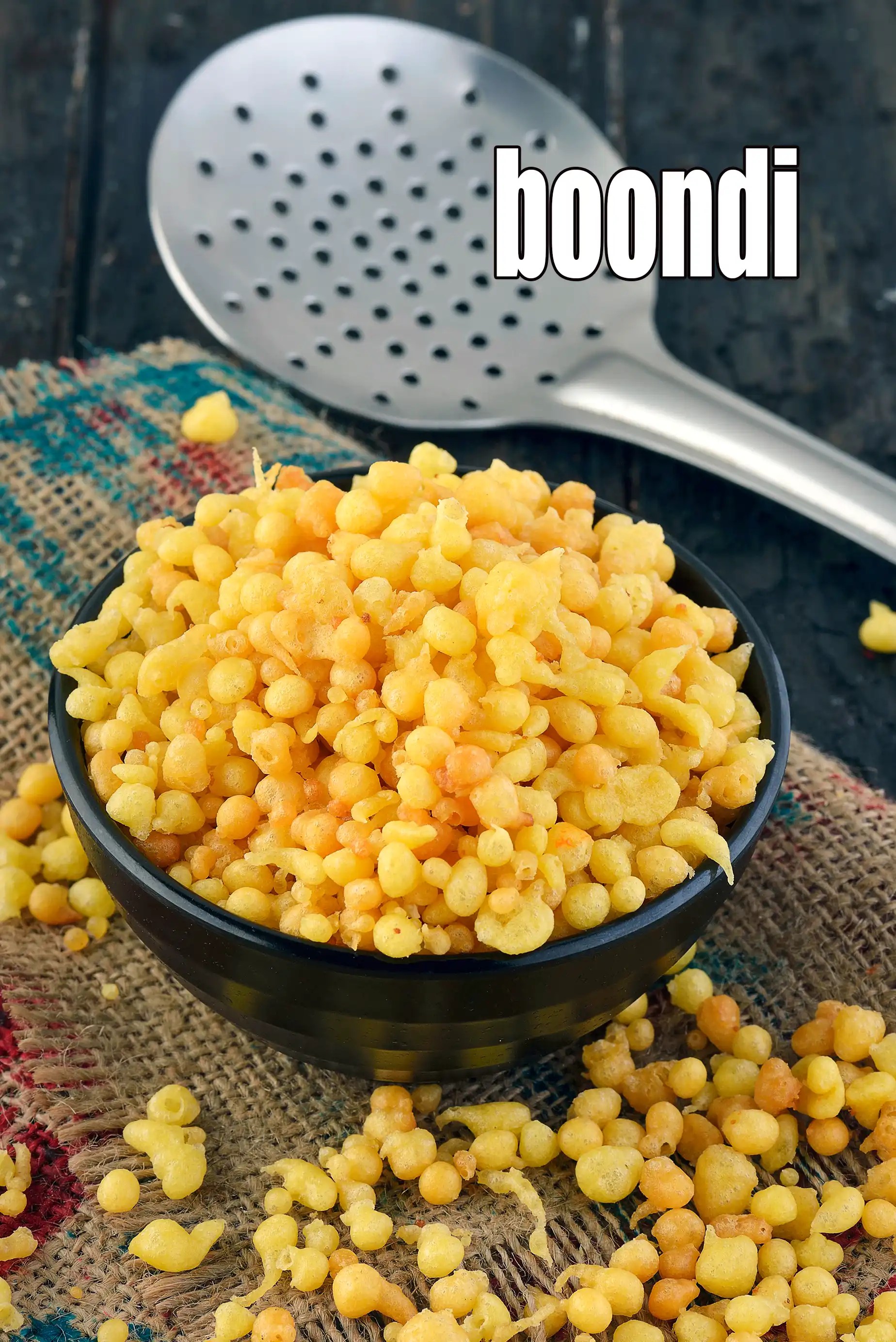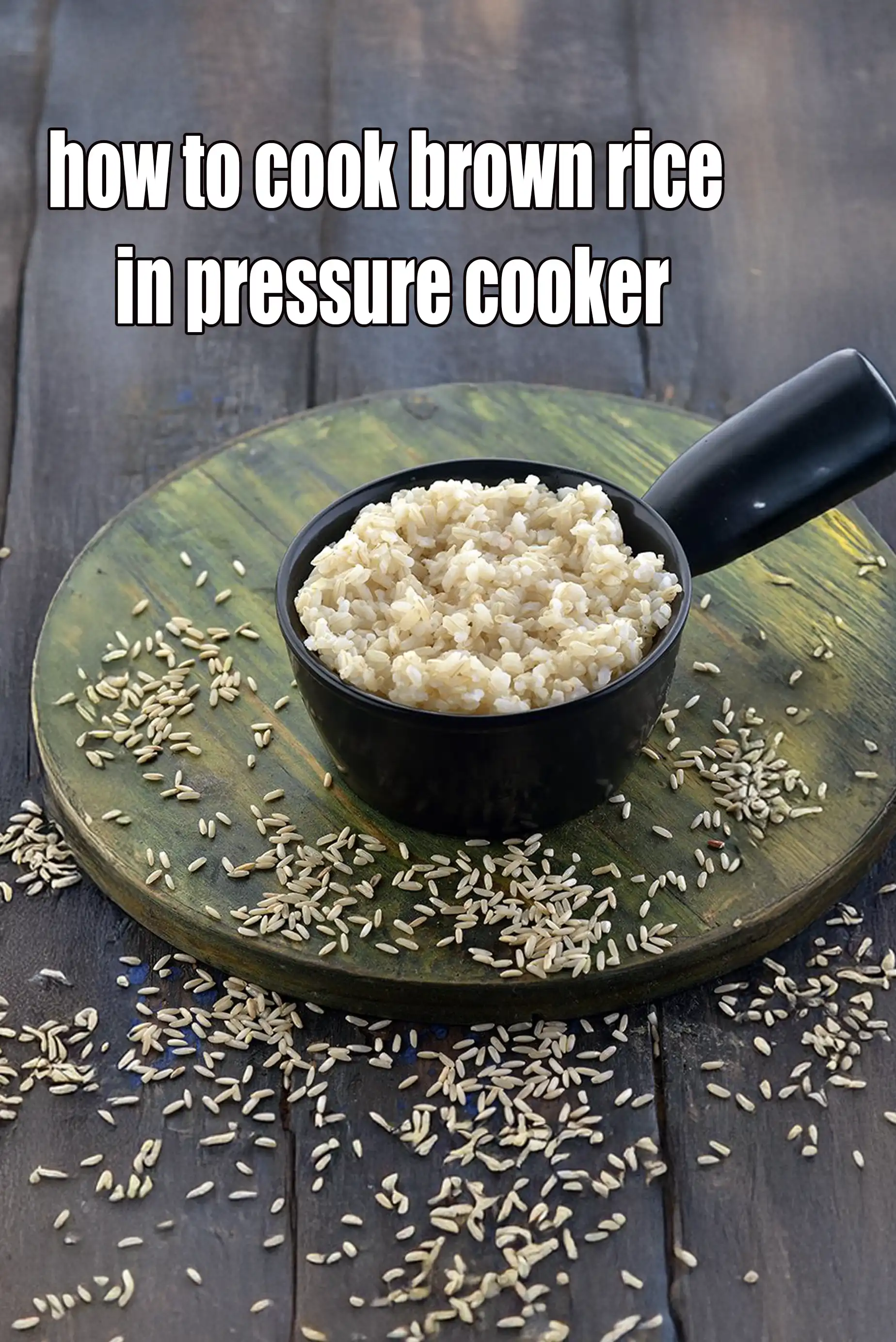You are here: Home> Cuisine > Indian Veg Recipes > South Indian > South Indian Breakfast > Appam ( How To Make Appam )
appam recipe | instant appam | Kerala appam | palappam |

Tarla Dalal
02 March, 2024
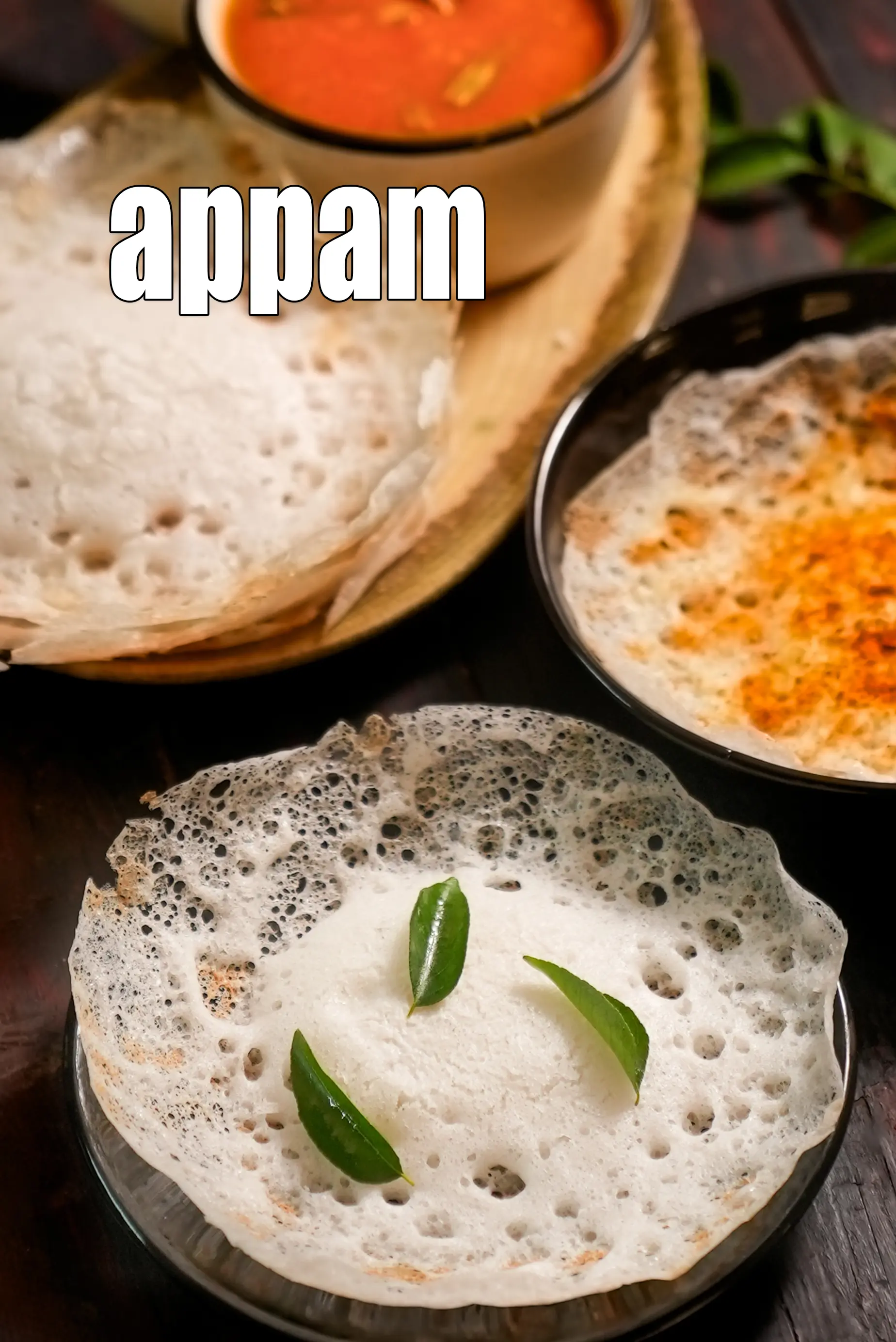
Table of Content
appam recipe | instant appam | Kerala appam | palappam | with 7 amazing images.
Appam is a tasty white Indian pancake crisp on the sides with a soft centre. appam or palappam are a famous Kerala breakfast made from raw rice, coconut milk, dry yeast and a little bit of sugar.
Appam is a famous dish from the Keralite repertoire of South Indian cooking. This Kerala appam is an easy-to-make, instant version of the otherwise tough-to-make dish. Since yeast is used, the batter need not be fermented for long unlike the traditional version.
Notes on appam recipe. 1. The batter should rise, keep it in a warm place and it always depends on the weather conditions also. The batter will take time to rise if the weather outside is cold. The centre of the appam will always be thick. 2. Make sure the kadhai is hot when you make the appams. If the kadhai is not hot enough the batter will bounce back to the centre. 3. Dry yeast also should be dissolved and mixed well in the batter. 4. You need to use raw rice also known as (Kaccha chawal) in hindi which is readily available in any grocery store. And also see that you use thick coconut milk as you are adding warm water while grinding the rice. More water will split when you put in the appamchatty.
Serve appam with slightly-sweetened coconut milk and vegetable korma for a perfect meal!
Learn to make appam recipe | instant appam | Kerala appam | palappam | with step by step photos below.
Appam ( How To Make Appam )
Tags
Soaking Time
5 hours
Preparation Time
15 Mins
Cooking Time
30 Mins
Baking Time
0 Mins
Baking Temperature
0
Fermenting Time
3 hours
Total Time
45 Mins
Makes
15 appams
Ingredients
For The Appam
2 cups uncooked rice (chawal) , soaked for 4 to 5 hours and drained
1/2 cup cooked rice (chawal)
1/2 tsp instant dry yeast
2 pinches of sugar
1 cup coconut milk (nariyal ka doodh)
salt to taste
2 tsp sugar
6 tsp oil for greasing and cooking
For Serving With Appam
Method
For the appam
- Combine the soaked rice, cooked rice and approx. ½ cup of warm water and blend in a mixer to smooth paste. Keep aside.
- Combine the instant dry yeast, sugar and ½ cup of warm water in a bowl and mix well.
- Cover and keep aside for 10 to 20 minutes or till bubbles appear.
- Combine the ground rice paste, coconut milk, salt and sugar and mix well.
- Add the prepared yeast mixture and mix very well. Cover and keep aside to ferment for 2 to 3 hours.
Making appam
- To make appam, heat an appachatti (appam kadhai) and grease it lightly with oil.
- Pour a big ladleful of the batter into it and slowly rotate the kadhai in a circular motion so that a thin layer forms on the side while it remains thick in the centre.
- Put a little oil on the edges, cover with a lid and cook on a slow flame for 2 to 3 minutes, remove the appam when the centre fluffy part is cooked.
- Repeat with the remaining batter to make 14 more appams.
- Serve appam immediately with coconut stew.
Appam ( How To Make Appam ) recipe with step by step photos
-
-
like appam recipe | instant appam | Kerala appam | palappam | then see our collection of South Indian recipes, collection of appe recipes and some recipes we love.
- instant rava set dosa | instant sponge dosa | no fermentation sponge dosa | instant suji appam |
- palak paneer uttapam | spinach uttapam | suji palak uttapam |
-
like appam recipe | instant appam | Kerala appam | palappam | then see our collection of South Indian recipes, collection of appe recipes and some recipes we love.
-
-
what is appam made of ? See below image of list of ingredients to make appam.
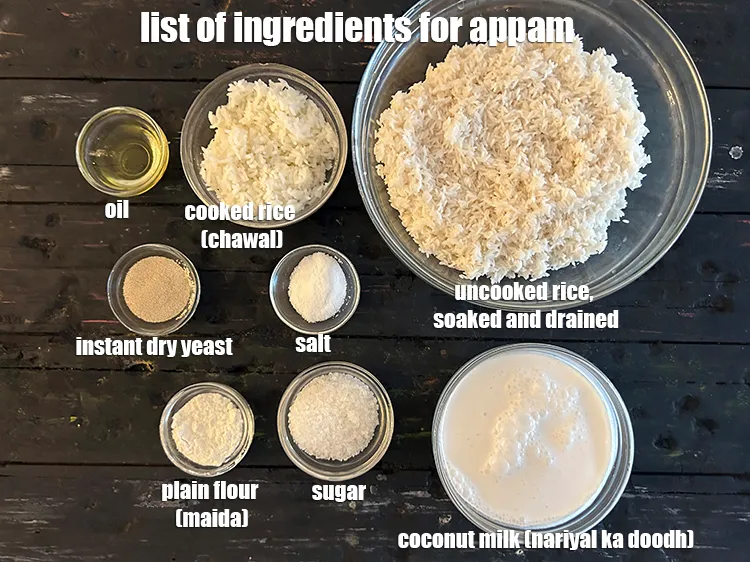
![]()
-
what is appam made of ? See below image of list of ingredients to make appam.
-
-
In a bowl put 2 cups uncooked rice (chawal).
-1-202956.webp)
![]()
-
Add enough water to soak the rice.
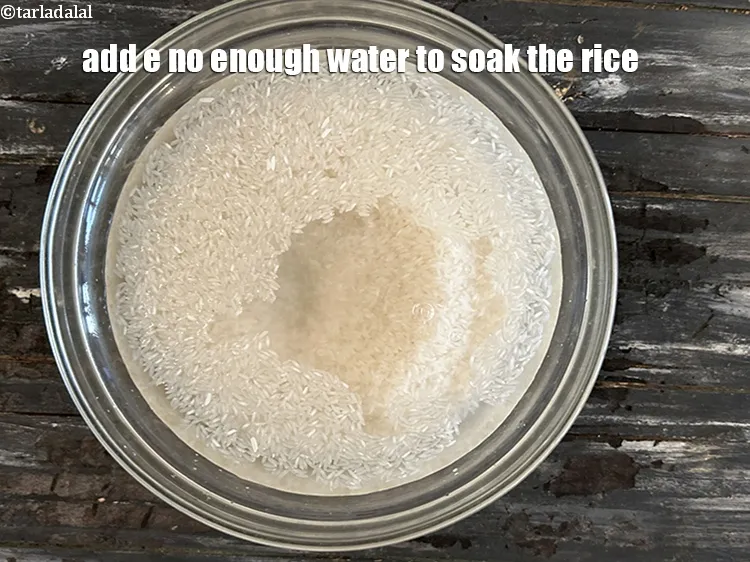
![]()
-
Clean the rice as you can see the water looks cloudy.
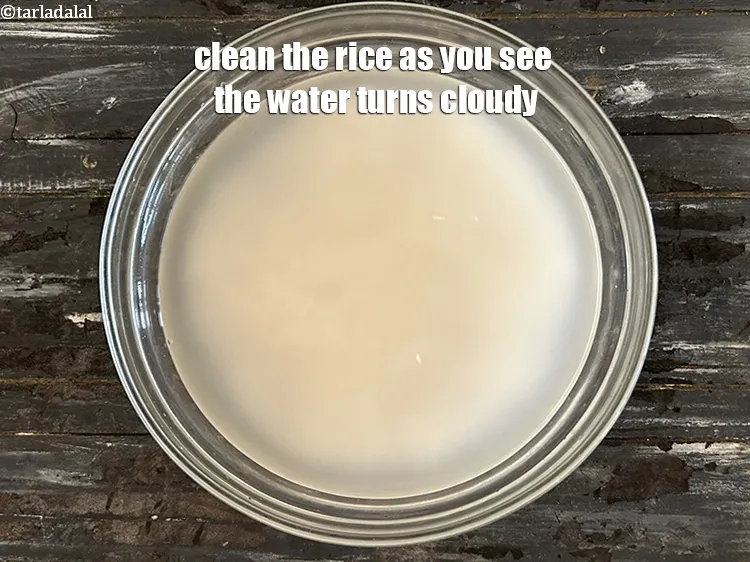
![]()
-
Wash the rice repeatedly, changing the water until it runs clear and free of starch.
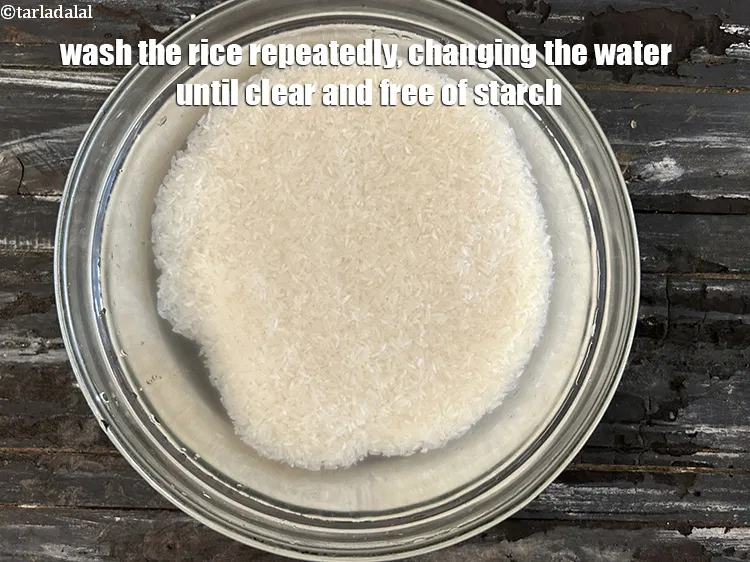
![]()
-
Cover with a lid and soak for 4 to 6 hours or overnight. Soaking ensures the rice kernels absorb water more evenly,leading to more consistent and even cooking, with fewer mushy or uncooked grains.
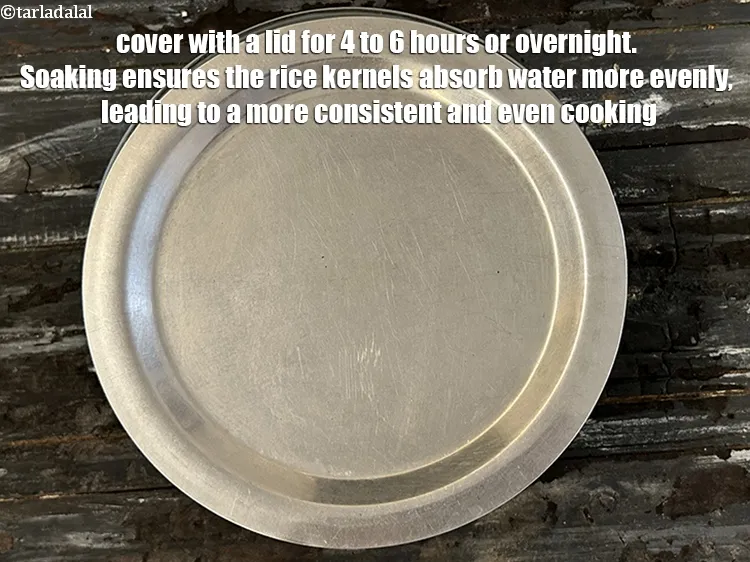
![]()
-
Image of rice after soaking.
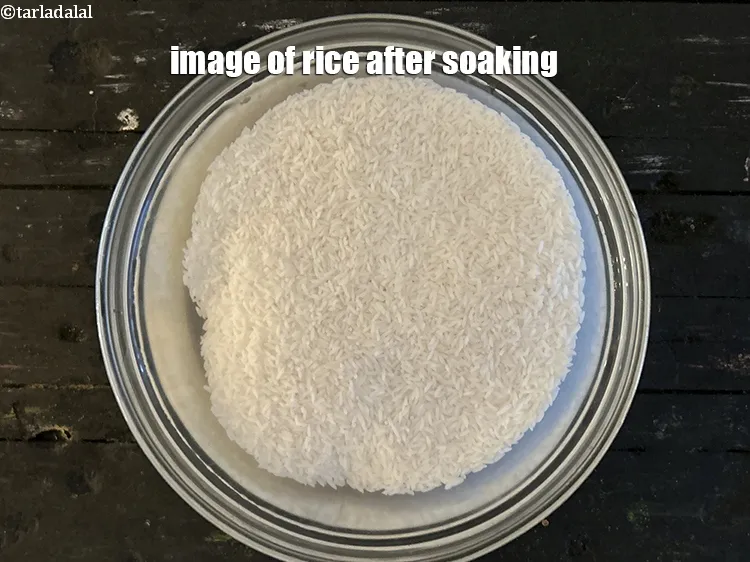
![]()
-
Drain.
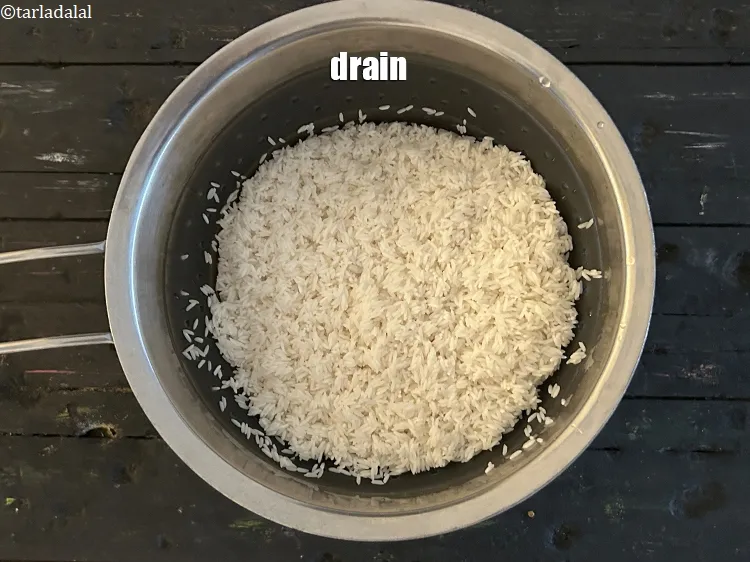
![]()
-
Soaked and drained rice.
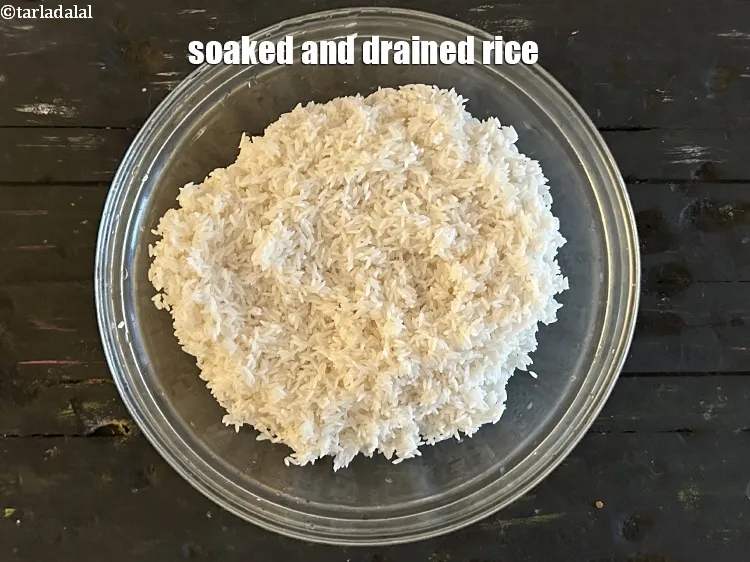
![]()
-
In a bowl put 2 cups uncooked rice (chawal).
-
-
- Q. My batter did rise and the taste was amazing. The problem is that the batter didn’t stick to the sides of the pan properly. It would just become very thick and as a result the centre was very thick too.
The batter should rise, keep it in a warm place and it always depends on the weather conditions also. The batter will take time to rise if the weather outside is cold. The centre of the appam will always be thick -
Q.When I put the batter in the kadhai, it was not spreading properly.?
Make sure the kadhai is hot when you make the appams. If the kadhai is not hot enough the batter will bounce back to the centre. - Q. My batter didn't rise instead it lumps down with a layer of water on top. I''ve used pre-boiled rice this time, but I've experimented with different varieties of rice and I don't think it is a problem because I've had this issue with raw rice too. What do you think is the problem?
We have used normal raw rice which is available everywhere, also make sure you keep the batter to ferment in a warm place. Cold weather can make the batter take little more time to ferment. Dry yeast also should be dissolved and mixed well in the batter. - Q. I followed the recipe to the T. Two problems occured, the batter did not rise at all even after several hours of being left undisturbed. Second, it split at the edges as soon as I poured it into the appamchatty. Please advise on what could have gone wrong. I used idli rice for the uncooked rice which I soaked for 4 hours?
The uncooked rice you have used is probably the wrong one.You need to use raw rice also known as (Kaccha chawal) in hindi which is readily available in any grocery store. And also see that you use thick coconut milk as you are adding warm water while grinding the rice. More water will split when you put in the appamchatty. -
Q. Coconut milk used is thick or thin? How much coconut will i need for 1 cup of coconut milk if i make it at home?
Coconut milk used in the recipe is thick coconut milk and is readymade.
- Q. My batter did rise and the taste was amazing. The problem is that the batter didn’t stick to the sides of the pan properly. It would just become very thick and as a result the centre was very thick too.
-
-
-
in a mixer put 2 cups uncooked rice (chawal) , soaked for 4 to 5 hours and drained. Rice flour forms the base of appam batter, providing structure and body to the thin pancake. The starch in the rice flour helps the batter hold its shape and allows for the characteristic bowl-like shape of appam to form during cooking.
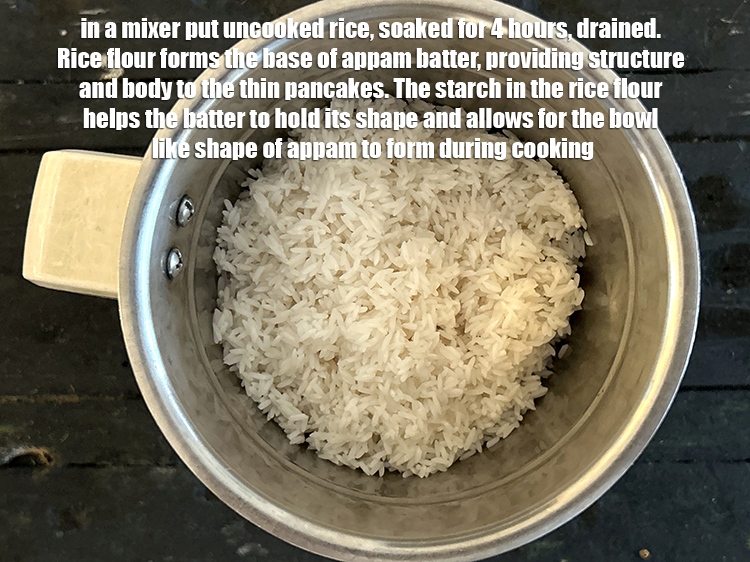
![]()
-
Add 1/2 cup cooked rice (chawal).
-2-202958.webp)
![]()
-
Add approx. ½ cup of warm water.

![]()
-
Blend in a mixer to smooth (very fine ) paste.
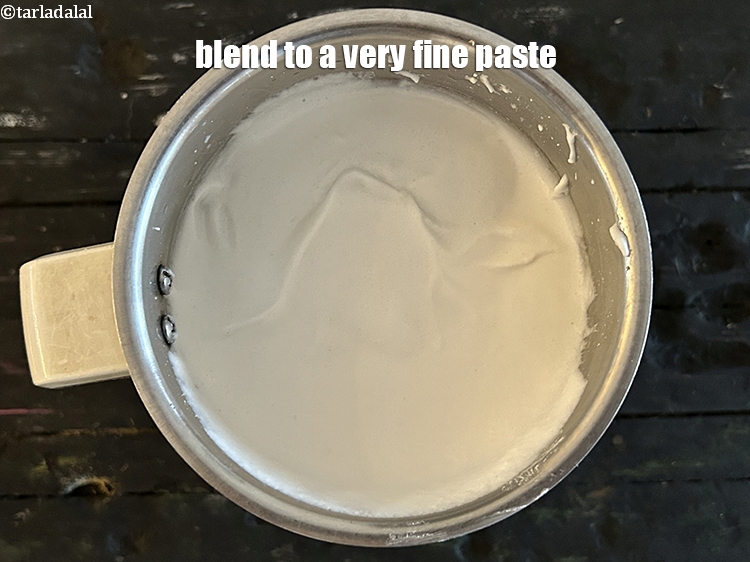
![]()
-
Keep aside rice paste.
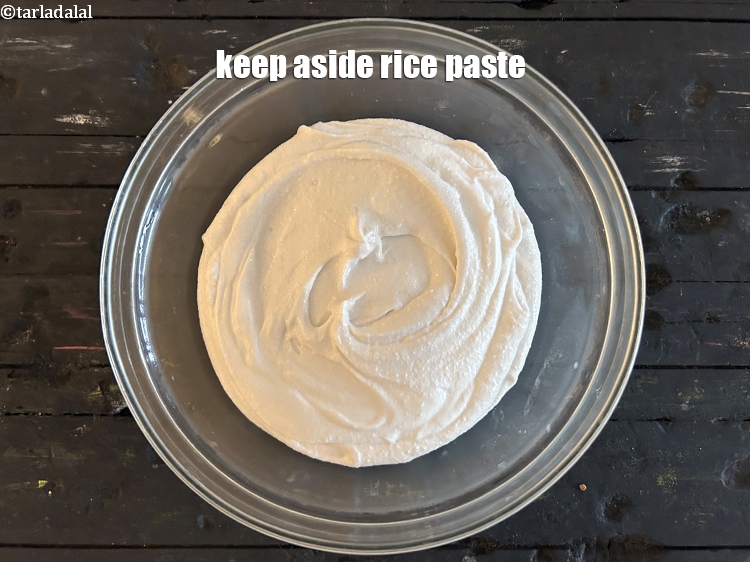
![]()
-
in a mixer put 2 cups uncooked rice (chawal) , soaked for 4 to 5 hours and drained. Rice flour forms the base of appam batter, providing structure and body to the thin pancake. The starch in the rice flour helps the batter hold its shape and allows for the characteristic bowl-like shape of appam to form during cooking.
-
-
To make yeast mixture in a bowl put 1/2 tsp instant dry yeast. Instant dry yeast is generally more readily available in stores compared to toddy (palm wine), which was traditionally used as a leavening agent in appam. This makes it a convenient option for home cooks.Instant dry yeast has a longer shelf life compared to fresh toddy, which needs to be used within a short period. Instant dry yeast performs well across a wider range of temperatures, which can be helpful in regions with cooler climates where toddy fermentation might be less efficient.
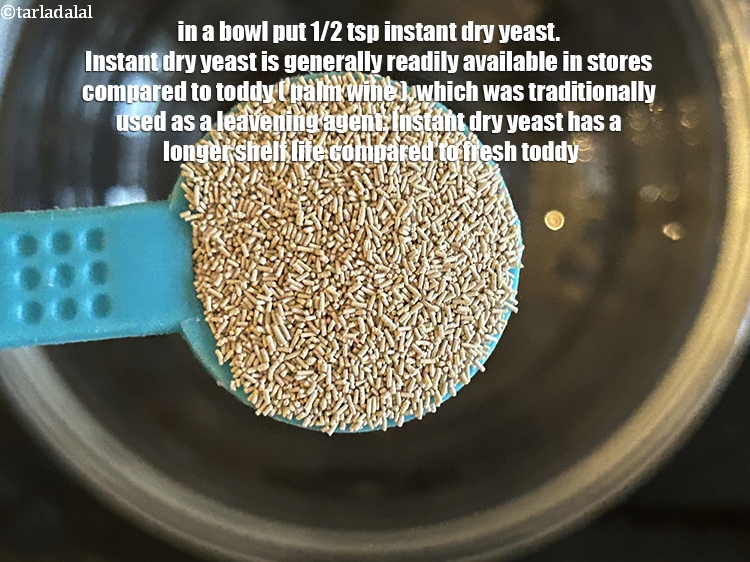
![]()
-
Add 2 pinches of sugar (optional). Sugar is believed to provide readily available simple sugars for the yeast to initiate the fermentation process, especially in cooler environments.
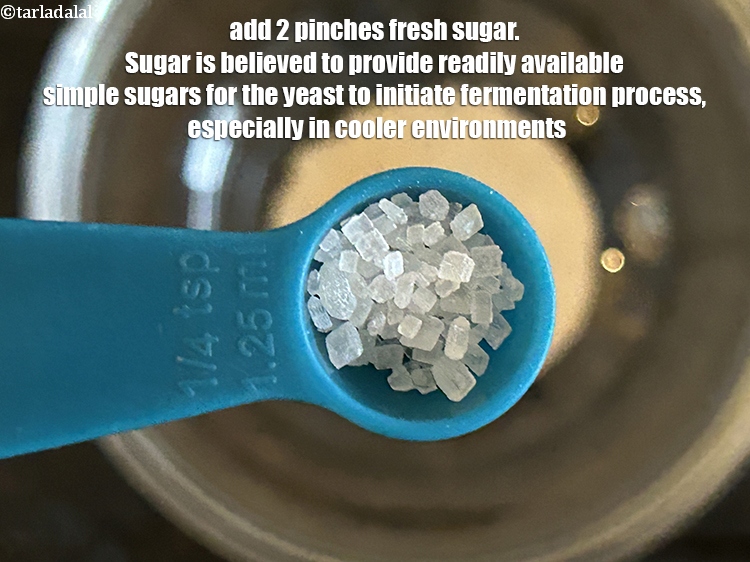
![]()
-
Add ½ cup of warm water. Warm water, ideally between 100°F and 110°F (37°C and 43°C), is added to dry yeast in making appam. Appam batter often includes sugar, toddy (palm wine), or other ingredients. Warm water can help dissolve these components more efficiently, leading to a smoother batter and better distribution of flavors.
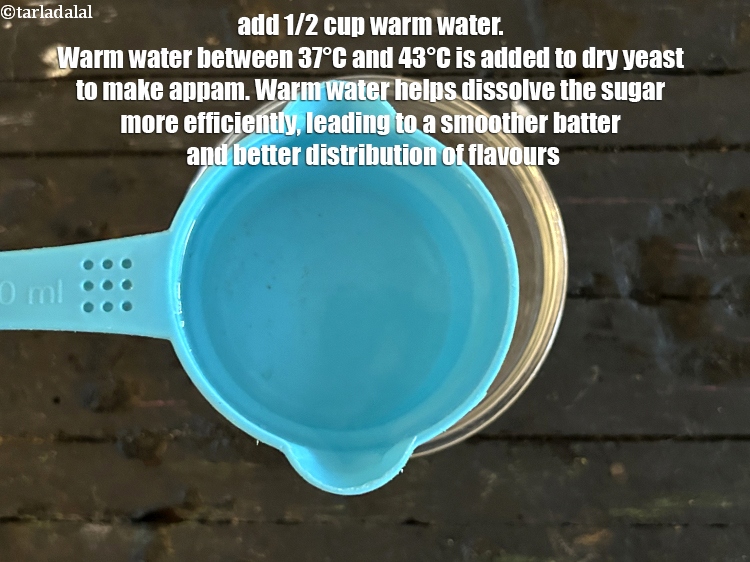
![]()
-
Mix well.
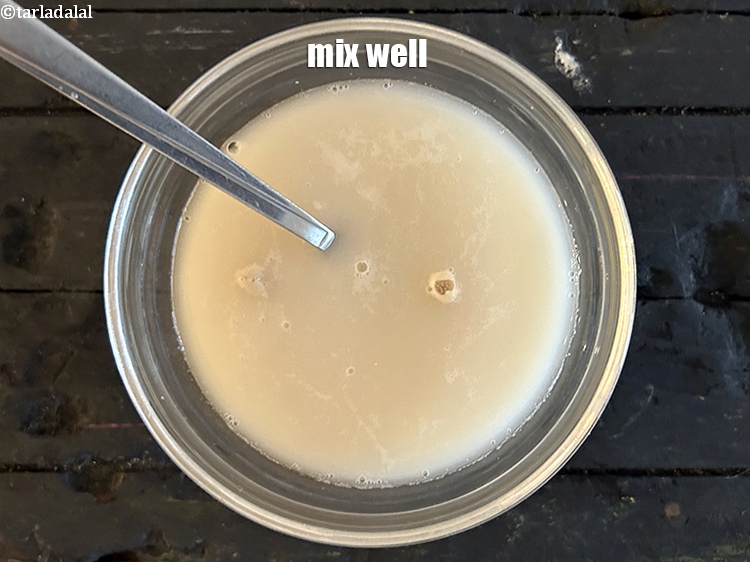
![]()
-
Cover and keep aside for 10 to 20 minutes or until bubbles appear. In colder climates it may take longer.
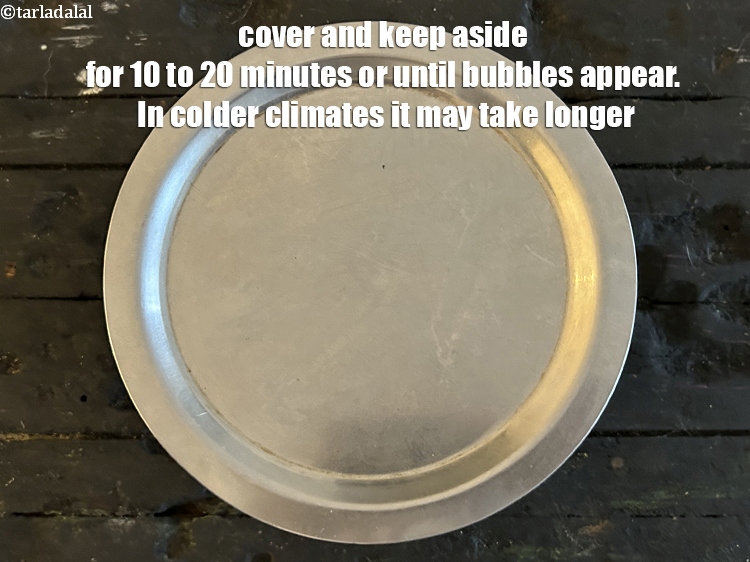
![]()
-
After 10 to 20 minutes there should be a froth on top. If there is not then discard this yeast mixture and make a fresh batch.
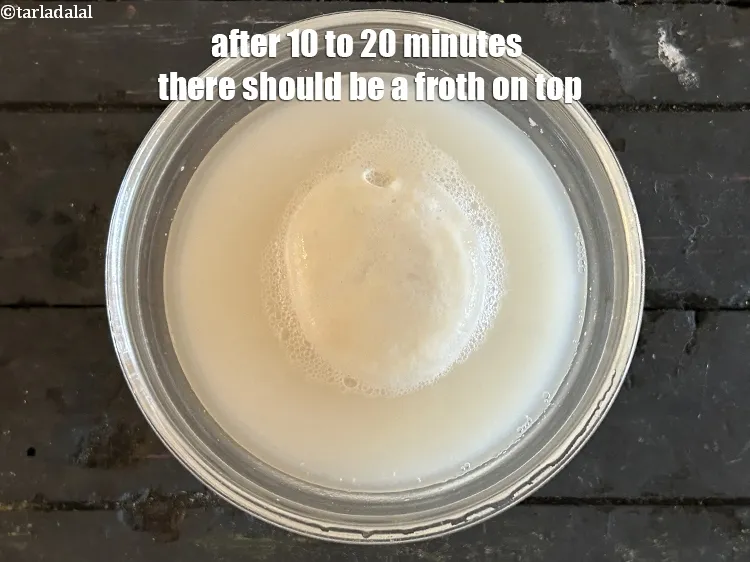
![]()
-
To make yeast mixture in a bowl put 1/2 tsp instant dry yeast. Instant dry yeast is generally more readily available in stores compared to toddy (palm wine), which was traditionally used as a leavening agent in appam. This makes it a convenient option for home cooks.Instant dry yeast has a longer shelf life compared to fresh toddy, which needs to be used within a short period. Instant dry yeast performs well across a wider range of temperatures, which can be helpful in regions with cooler climates where toddy fermentation might be less efficient.
-
-
To make appam batter, in a bowl put the prepared rice paste.
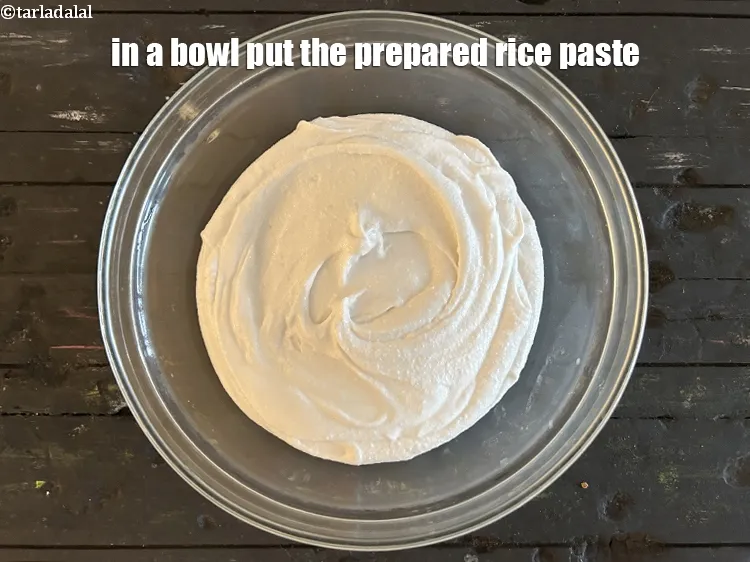
![]()
-
Add 1 cup coconut milk (nariyal ka doodh). Coconut milk is naturally rich in fats, which contribute to a soft and fluffy texture in the appam batter. This creates a pleasing contrast to the crispy exterior formed during cooking. Appam batter traditionally avoids gluten-containing flours like wheat. Coconut milk provides a binding agent, allowing the batter to hold its shape and rise while remaining gluten-free.
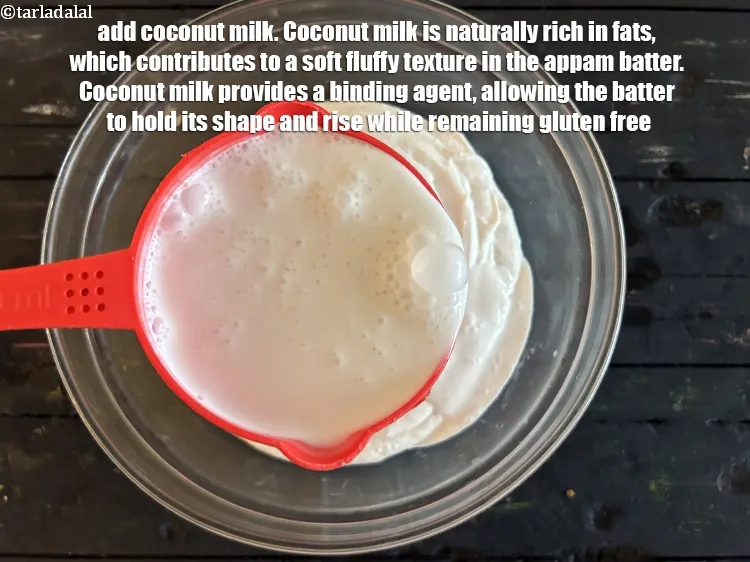
![]()
-
Add salt to taste. We added 1 tsp salt.
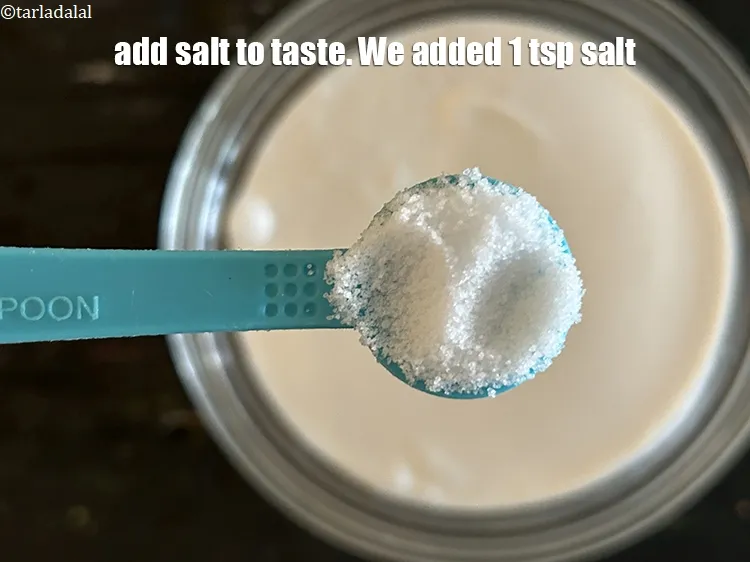
![]()
-
Add 2 tsp sugar. A small amount of sugar (usually less than 1 tablespoon) can aid the fermentation process by feeding the yeast, which helps the batter rise and become lighter. A subtle sweetness can complement the savory notes of coconut and spices in the appam. However, appam is not typically considered a sweet dish, and the sweetness from sugar should be very mild.
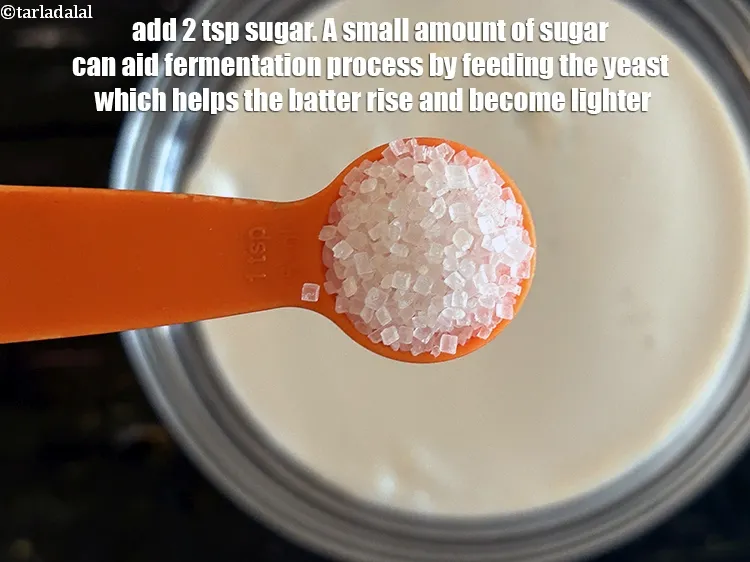
![]()
-
Mix well. The batter may be slightly thick at this stage and that is okay.
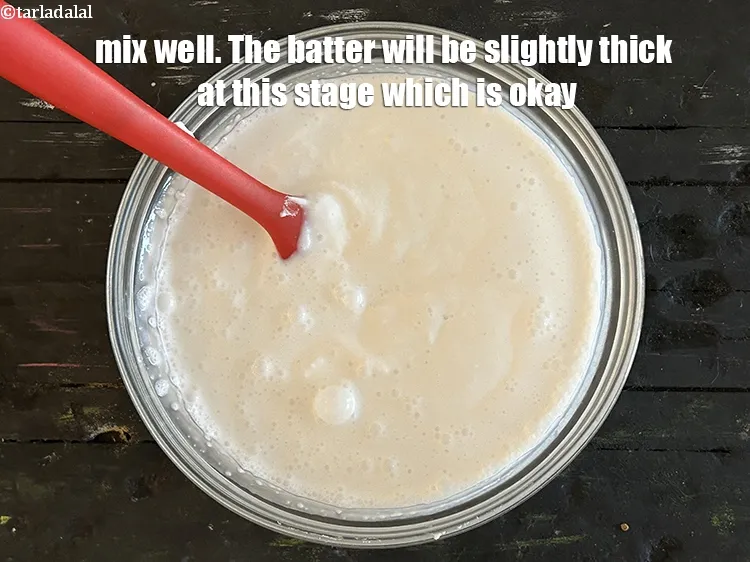
![]()
-
Add the prepared yeast mixture.
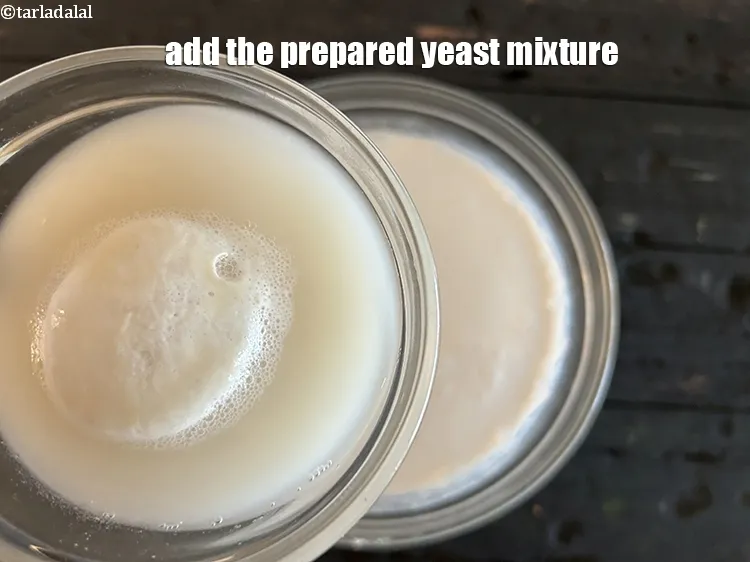
![]()
-
Mix very well. If the batter is too thick then add little warm water.
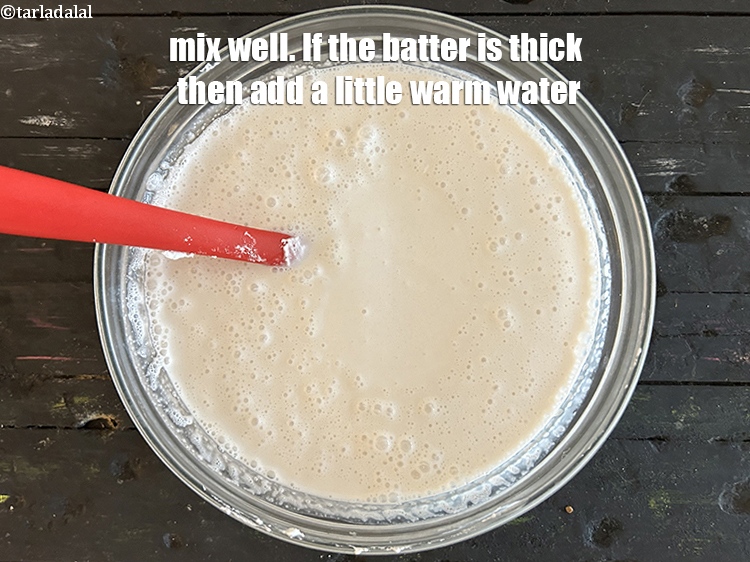
![]()
-
Cover and keep aside the batter to ferment for 2 to 3 hours. This is essential for achieving the characteristic spongy and soft texture of appam. Appam batter ferments well in warm climates or when placed near a heat source like a stovetop or oven. In cold climate batter will take longer to ferment.
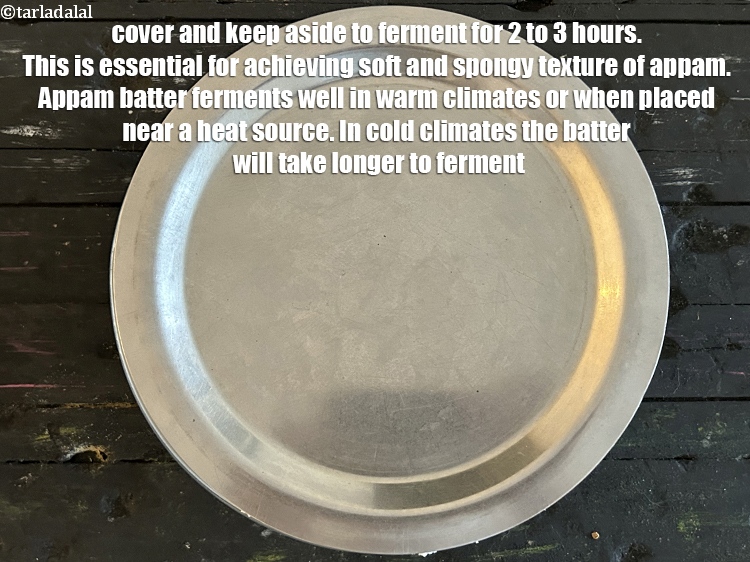
![]()
-
Fermented appam batter.
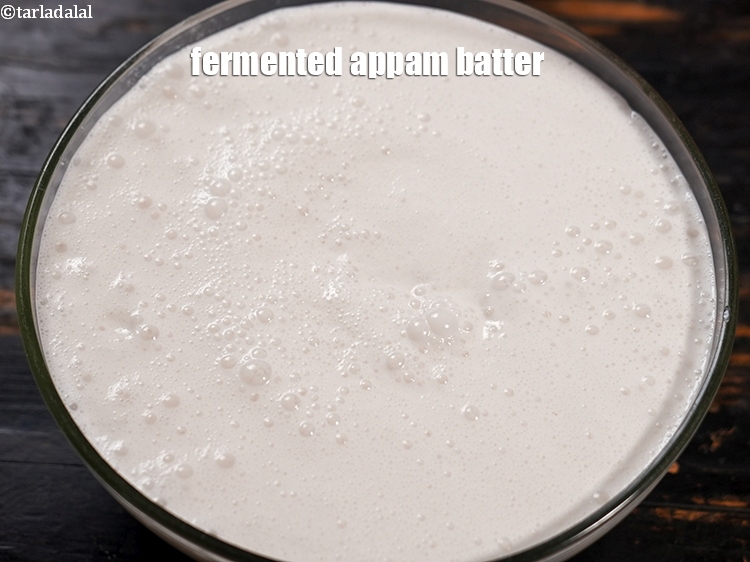
![]()
-
To make appam batter, in a bowl put the prepared rice paste.
-
-
To make Appam recipe | Appam Kerala Recipe | South Indian appam with yeast | heat an appachatti (appam kadhai) and grease it lightly with oil.
-1-202961.webp)
![]()
-
Pour a big ladleful of the batter into it.
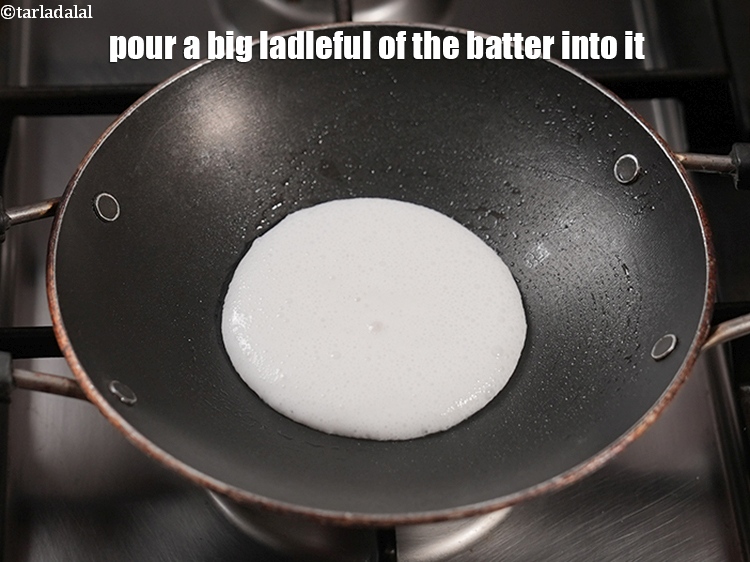
![]()
-
Slowly rotate the kadhai in a circular motion so that a thin layer forms on the side while it remains thick in the centre.
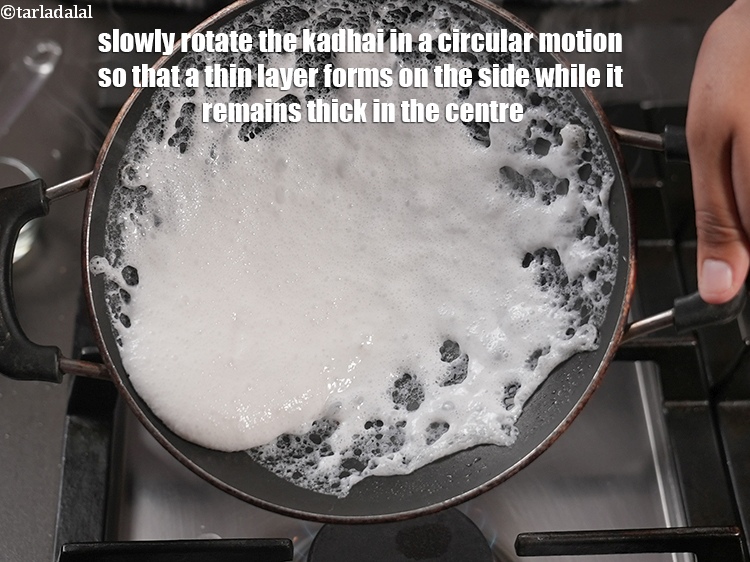
![]()
-
Put a little oil on the edges.
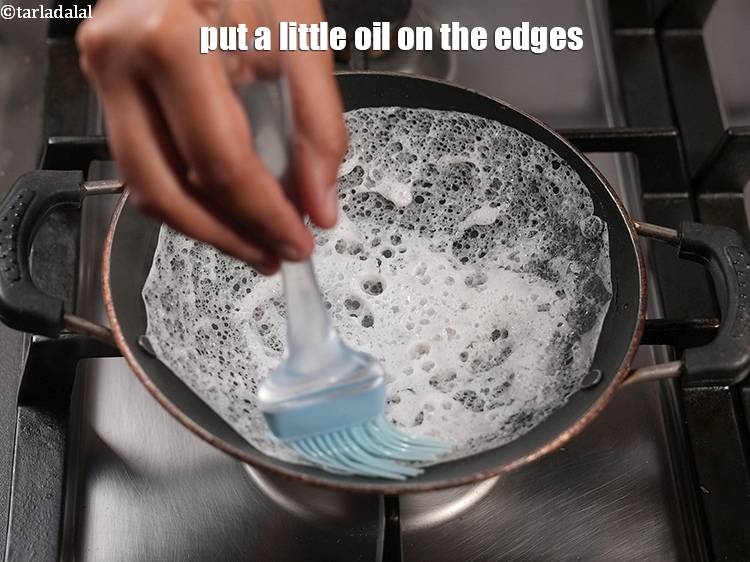
![]()
-
Cover with a lid and cook on a slow flame for 2 to 3 minutes.
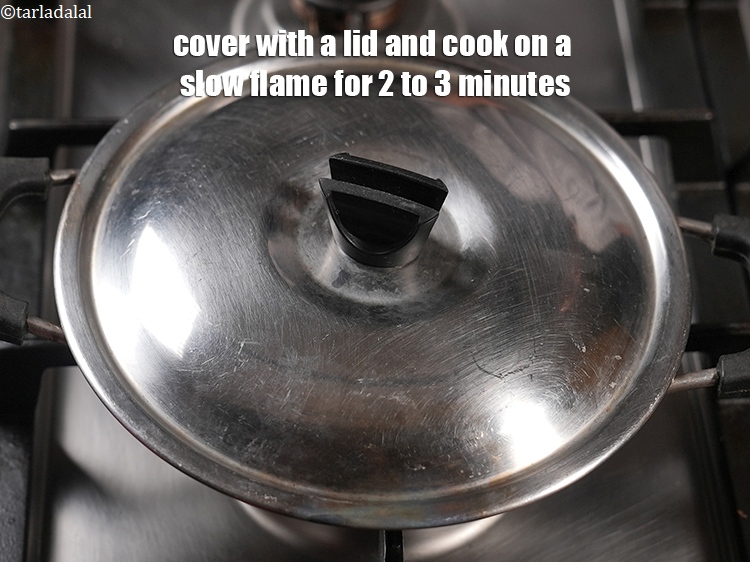
![]()
-
Remove the appam when the centre fluffy part is cooked.
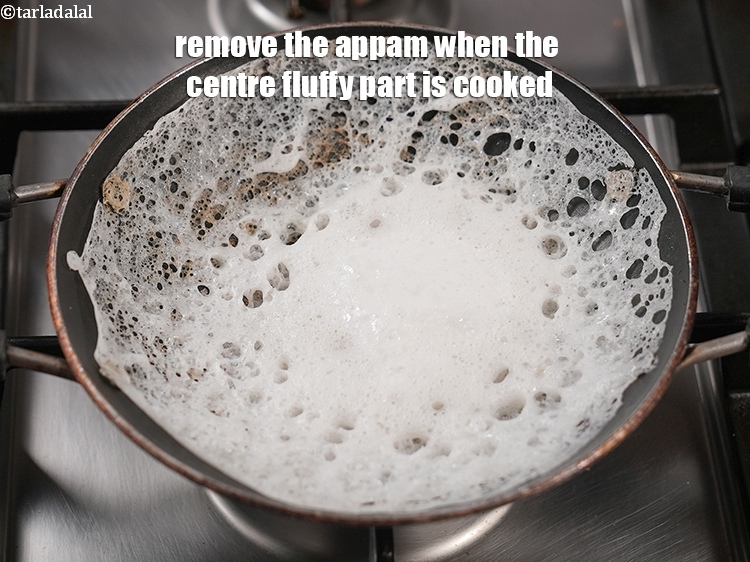
![]()
-
Serve Appam | Appam Kerala | South Indian appam with yeast | immediately with milagai podi powder, coconut chutney, sambar and coconut stew.
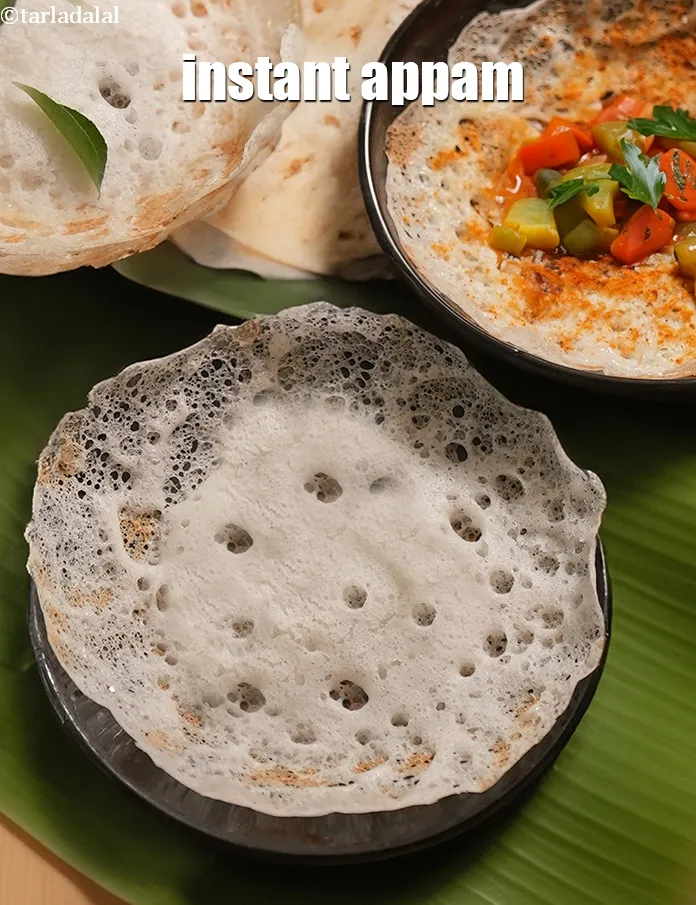
![]()
-
To make Appam recipe | Appam Kerala Recipe | South Indian appam with yeast | heat an appachatti (appam kadhai) and grease it lightly with oil.
-
-
To make yeast mixture in a bowl put 1/2 tsp instant dry yeast. Instant dry yeast is generally more readily available in stores compared to toddy (palm wine), which was traditionally used as a leavening agent in appam. This makes it a convenient option for home cooks.Instant dry yeast has a longer shelf life compared to fresh toddy, which needs to be used within a short period. Instant dry yeast performs well across a wider range of temperatures, which can be helpful in regions with cooler climates where toddy fermentation might be less efficient.
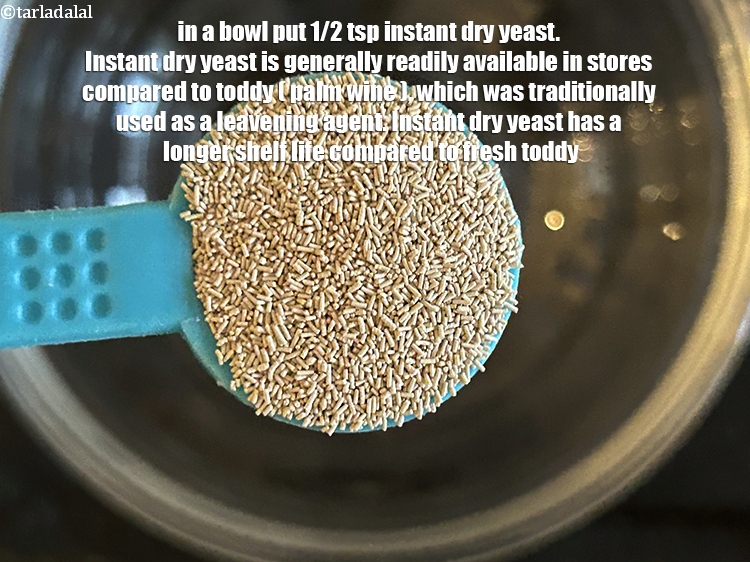
![]()
-
Add ½ cup of warm water. Warm water, ideally between 100°F and 110°F (37°C and 43°C), is added to dry yeast in making appam. Appam batter often includes sugar, toddy (palm wine), or other ingredients. Warm water can help dissolve these components more efficiently, leading to a smoother batter and better distribution of flavors.
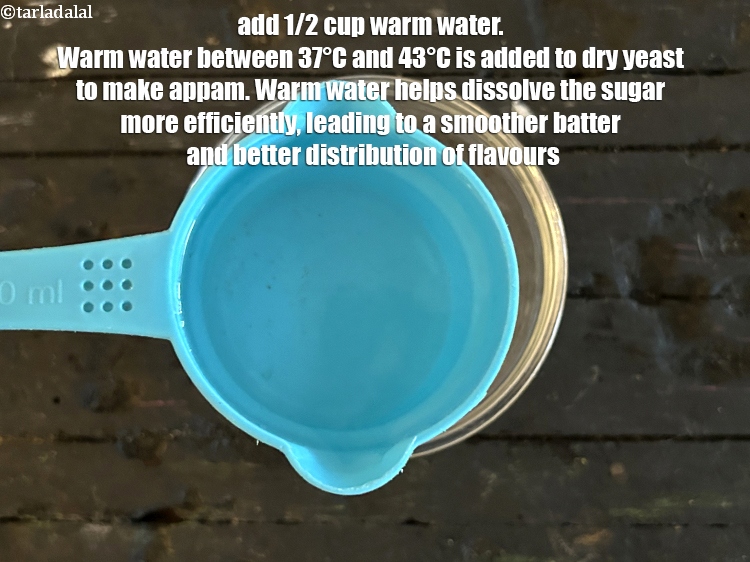
![]()
-
Add 1 cup coconut milk (nariyal ka doodh). Coconut milk is naturally rich in fats, which contribute to a soft and fluffy texture in the appam batter. This creates a pleasing contrast to the crispy exterior formed during cooking. ppam batter traditionally avoids gluten-containing flours like wheat. Coconut milk provides a binding agent, allowing the batter to hold its shape and rise while remaining gluten-free.
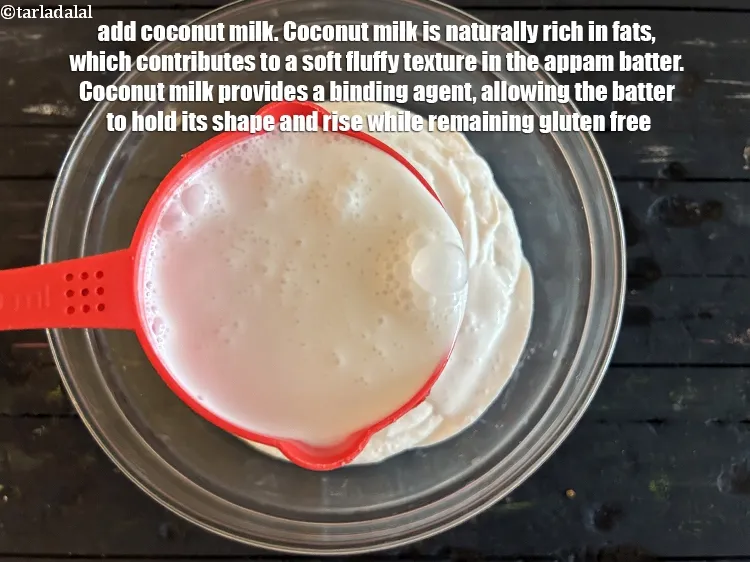
![]()
-
Add 2 tsp sugar. A small amount of sugar (usually less than 1 tablespoon) can aid the fermentation process by feeding the yeast, which helps the batter rise and become lighter. A subtle sweetness can complement the savory notes of coconut and spices in the appam. However, appam is not typically considered a sweet dish, and the sweetness from sugar should be very mild.
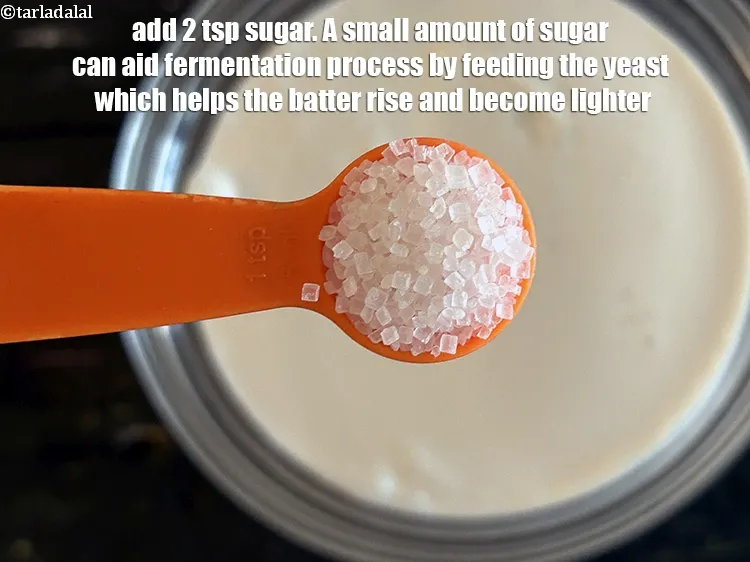
![]()
-
Cover and keep aside the batter to ferment for 2 to 3 hours. This is essential for achieving the characteristic spongy and soft texture of appam. Appam batter ferments well in warm climates or when placed near a heat source like a stovetop or oven light. In cold climate batter will take longer to ferment.
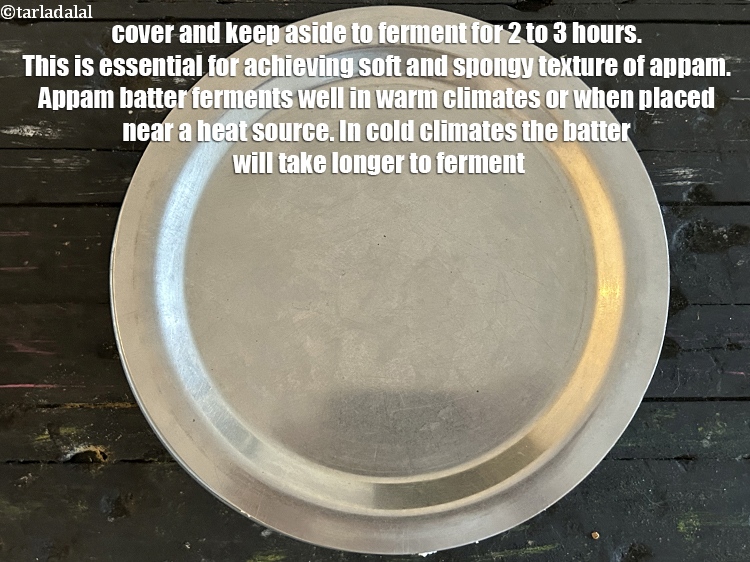
![]()
-
To make yeast mixture in a bowl put 1/2 tsp instant dry yeast. Instant dry yeast is generally more readily available in stores compared to toddy (palm wine), which was traditionally used as a leavening agent in appam. This makes it a convenient option for home cooks.Instant dry yeast has a longer shelf life compared to fresh toddy, which needs to be used within a short period. Instant dry yeast performs well across a wider range of temperatures, which can be helpful in regions with cooler climates where toddy fermentation might be less efficient.
-
-
If you don't have appachatti (appam kadhai) then cook the appam on a tava.
-1-202963.webp)
![]()
-
Tava appam. Serve tava appam with coconut chutney, sambar or coconut stew.
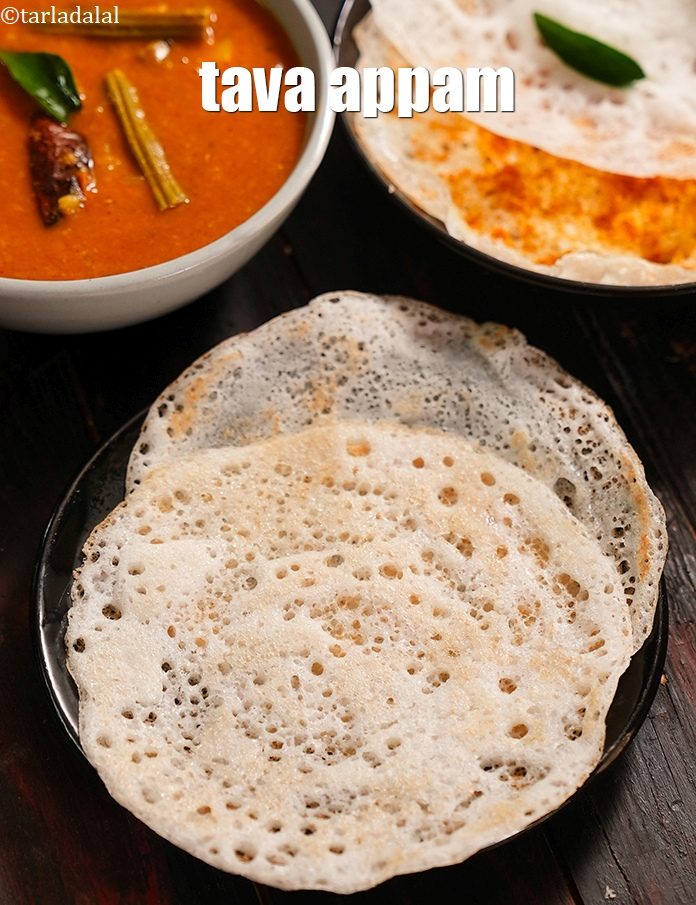
![]()
-
If you don't have appachatti (appam kadhai) then cook the appam on a tava.
Nutrient values (Abbrv)per plate
| Energy | 138 cal |
| Protein | 1.9 g |
| Carbohydrates | 19.5 g |
| Fiber | 1.3 g |
| Fat | 6.1 g |
| Cholesterol | 0 mg |
| Sodium | 4 mg |
Click here to view Calories for Appam ( How To Make Appam )
The Nutrient info is complete

Foodie #513182
Feb. 6, 2021, 8:27 p.m.

Foodie #555986
Jan. 22, 2021, 3:16 p.m.
like it

Foodie #511938
July 6, 2020, 10:46 a.m.

Sharmistha Mazumdar
Feb. 12, 2020, 1:27 p.m.
Can I use something instead of yeast?

Tarla Dalal
Feb. 12, 2020, 1:27 p.m.
Hi, Sorry no replacement for yeast.

MaryZareah
Oct. 28, 2019, 10:52 a.m.
Excellent , was searching for it and now got an easy recipe to make Appams, thank you tarla ben :)

beena agnihotry
Sept. 16, 2018, 1:38 p.m.
Hi i am v happy ur all recipes Pls try and iam looking forward baking recipes Thanks

Tarla Dalal
Sept. 16, 2018, 1:38 p.m.
Hi Beena, thank you for your feedback. Happy cooking!

Foodie #566676
July 27, 2017, 2:34 p.m.
Excellent , Thank you very much

Namo Ram
July 19, 2017, 11:12 a.m.
can we use palm wine instead of yeast?

Tarla Dalal
July 19, 2017, 11:12 a.m.
Yes, you can use it. But the fermentation time may be more than 2 to 3 hours as mentioned in the recipe. So, kindly adjust the fermentation time accordingly.

Mrs.arvind
Sept. 8, 2016, 11:53 a.m.
hi mam...i will try

Tarla Dalal
Sept. 8, 2016, 11:53 a.m.
Thanks Mrs Arvind. Let us know how the Appam can out. Happy cooking.

Alka
June 6, 2016, 3:30 p.m.

Fine recipe is good and easy just like dosa
May 9, 2016, 7:36 a.m.

Laura Plumb
Sept. 22, 2015, 6:50 p.m.
Thank you Tarla. This is so helpful.

Suesh
Nov. 20, 2014, 2:04 p.m.

Tarla Dalal
Nov. 20, 2014, 2:04 p.m.
thanks for the feedback !!! keep reviewing recipes you loved.

mangala kandur
Oct. 7, 2014, 12:32 p.m.
instead of yeast,what can we use.

Tarla Dalal
Oct. 7, 2014, 12:32 p.m.
Hi, this is an instant recipe, that is why yeast has been used in the recipe.

raj kumar
Oct. 16, 2012, 3:29 p.m.
Humko acha laga

raj kumar
Oct. 10, 2012, 9:29 a.m.

